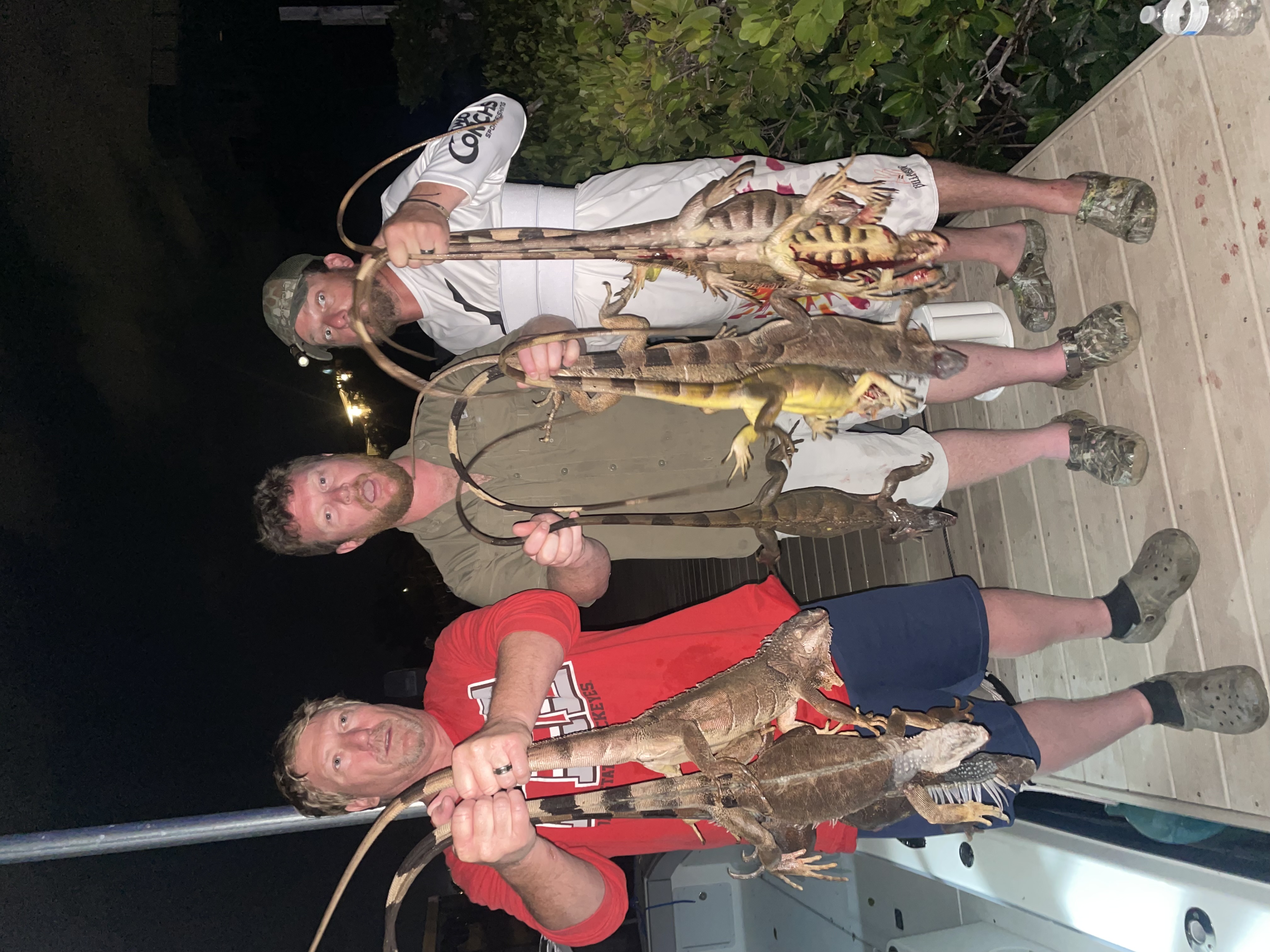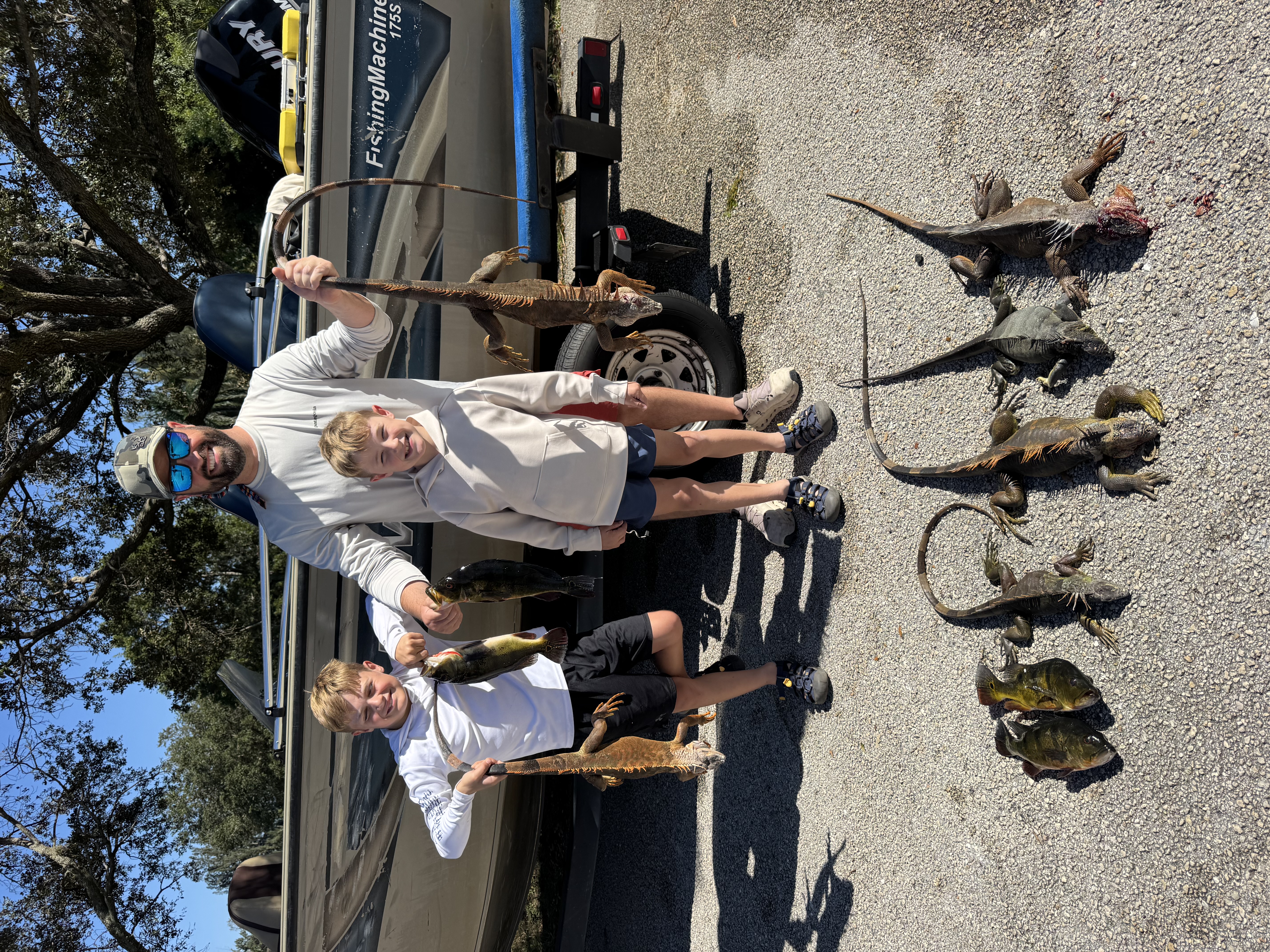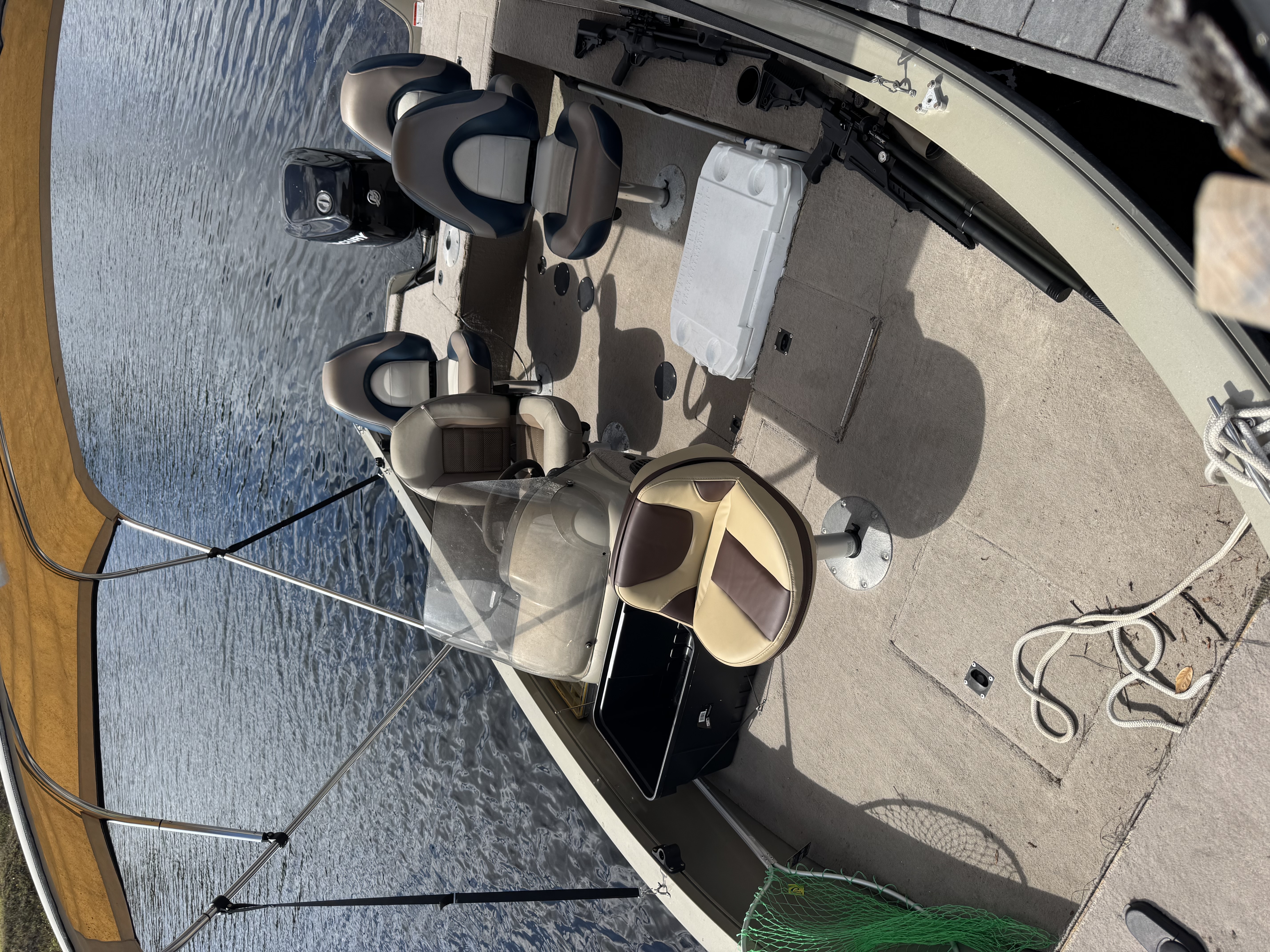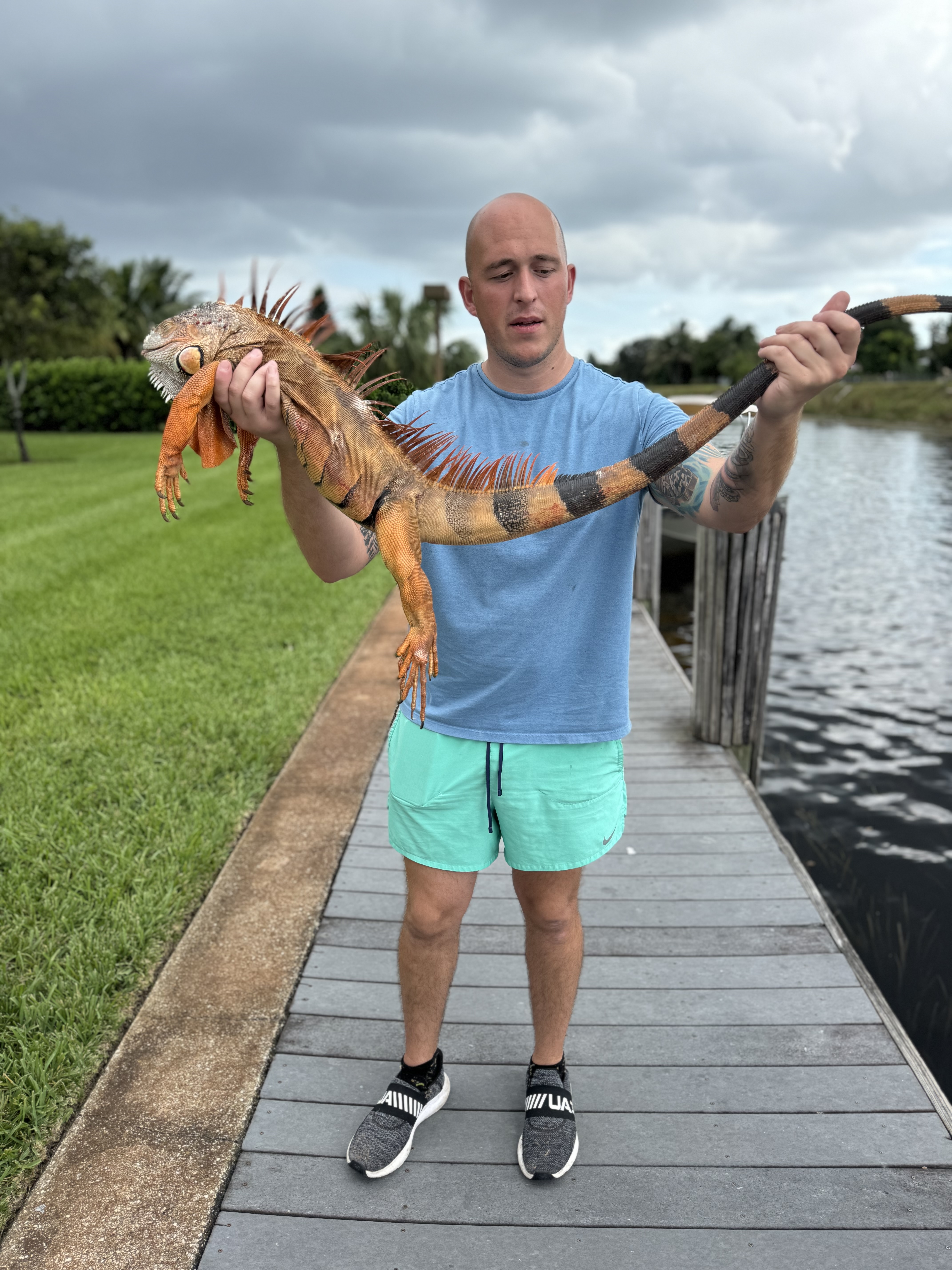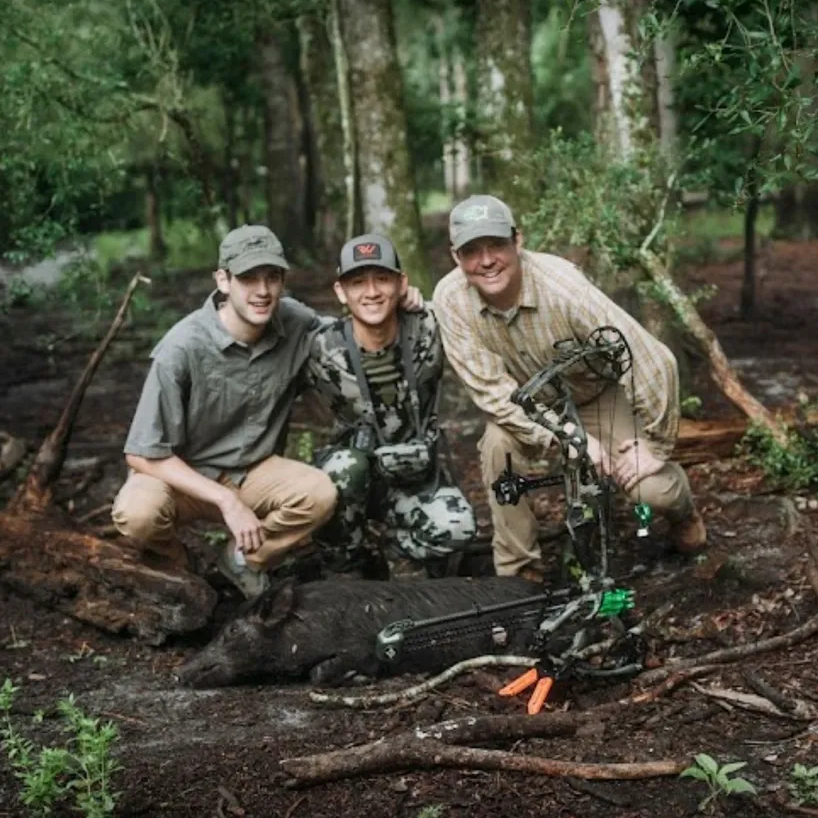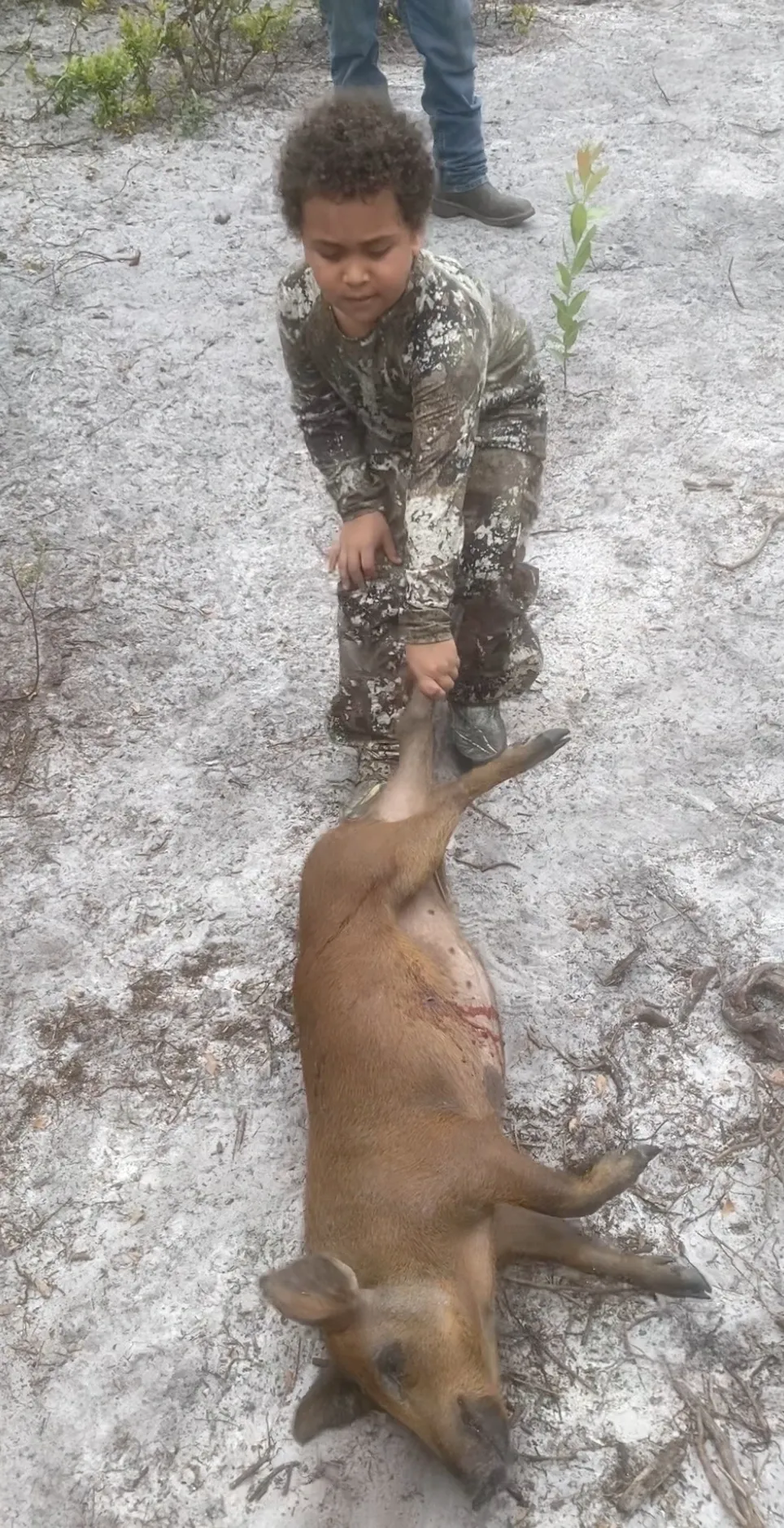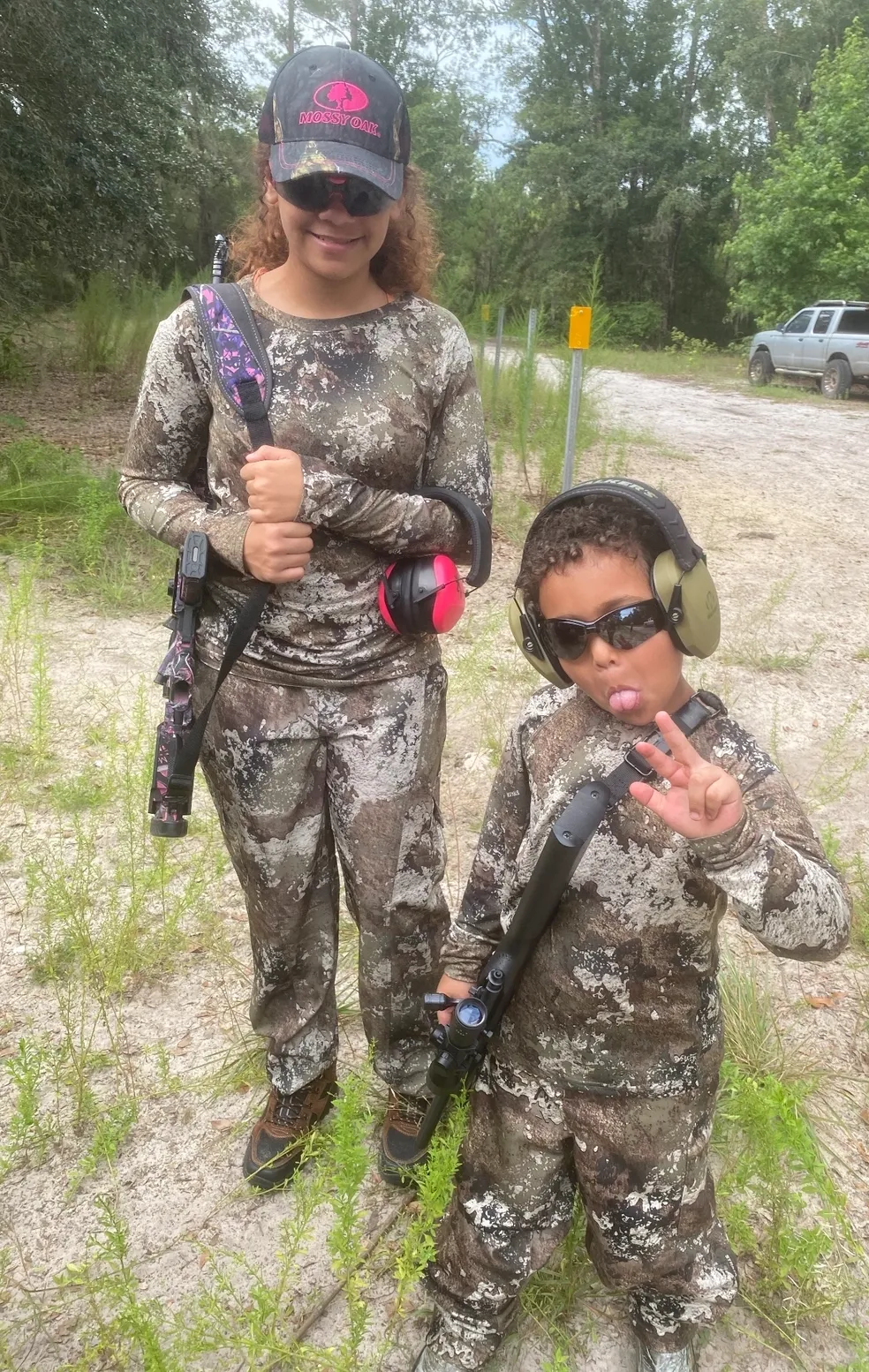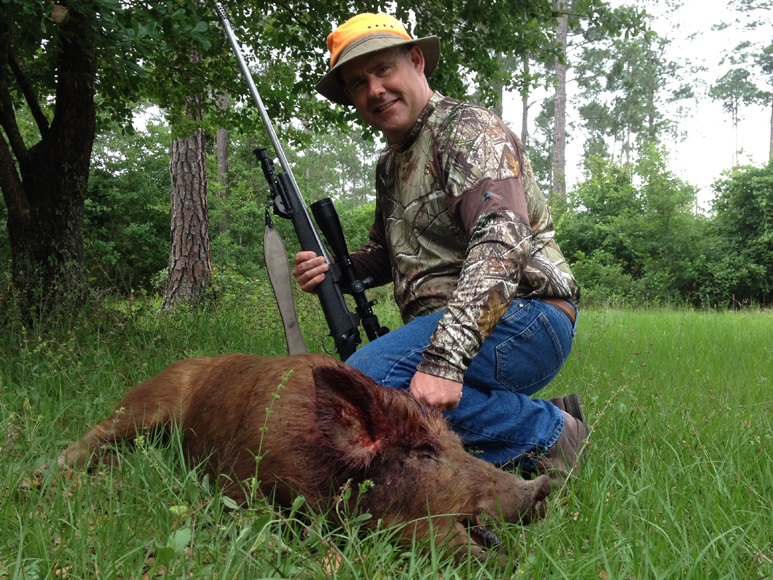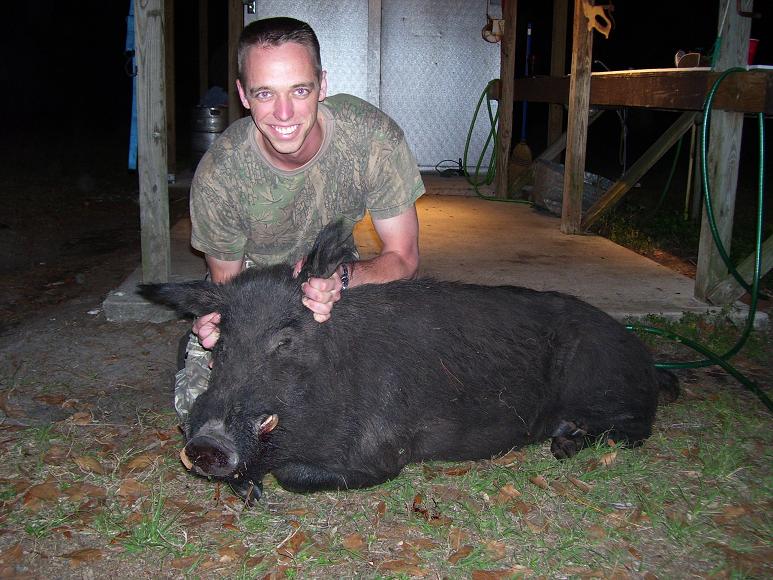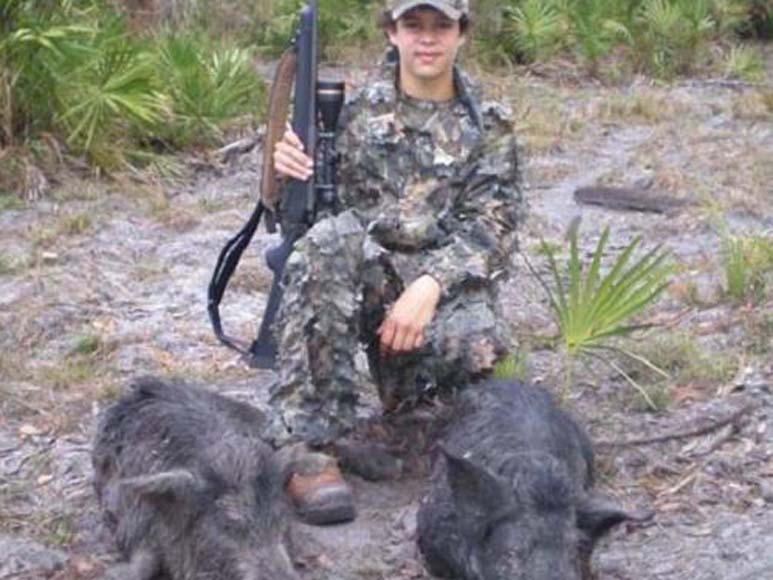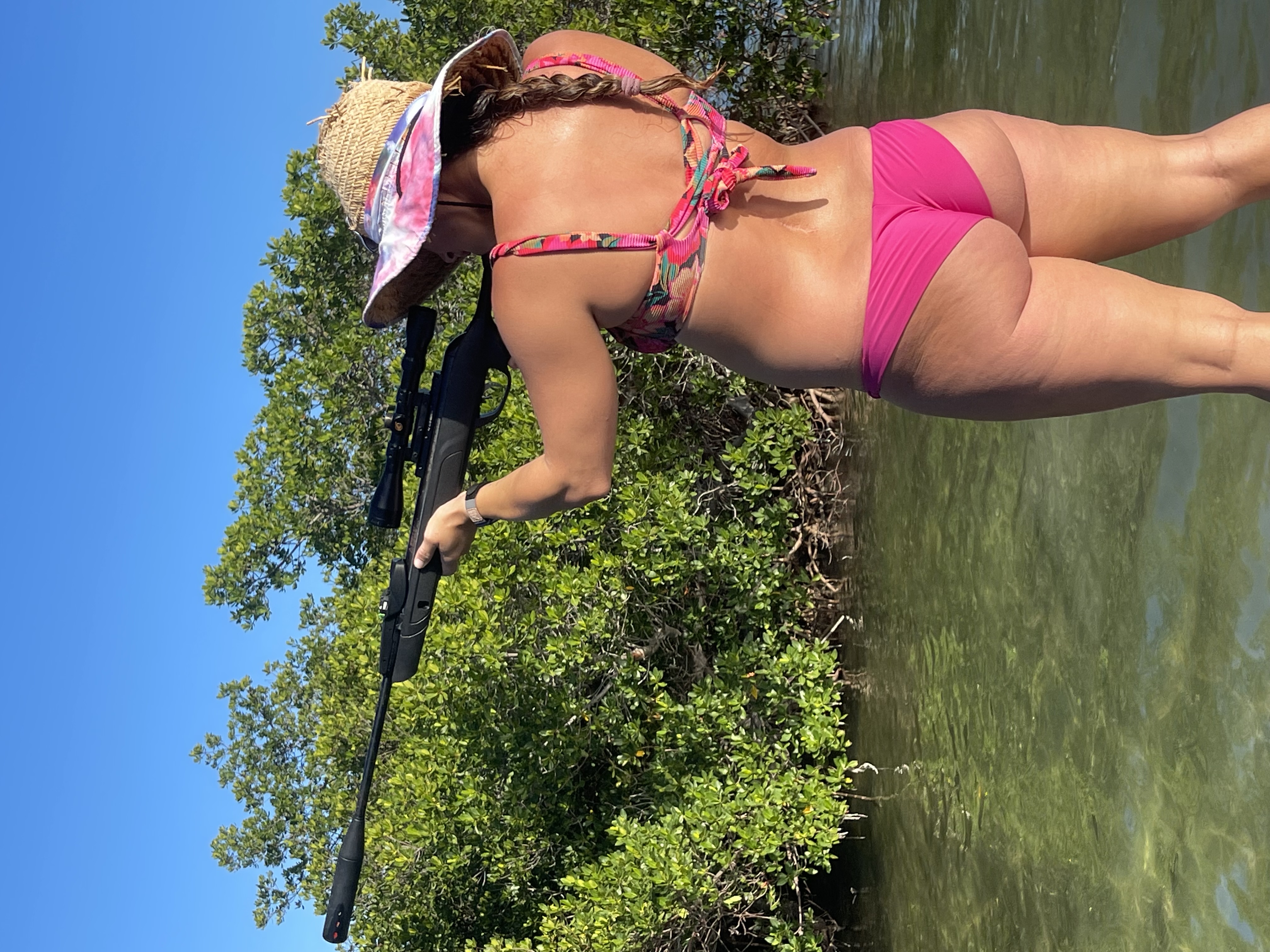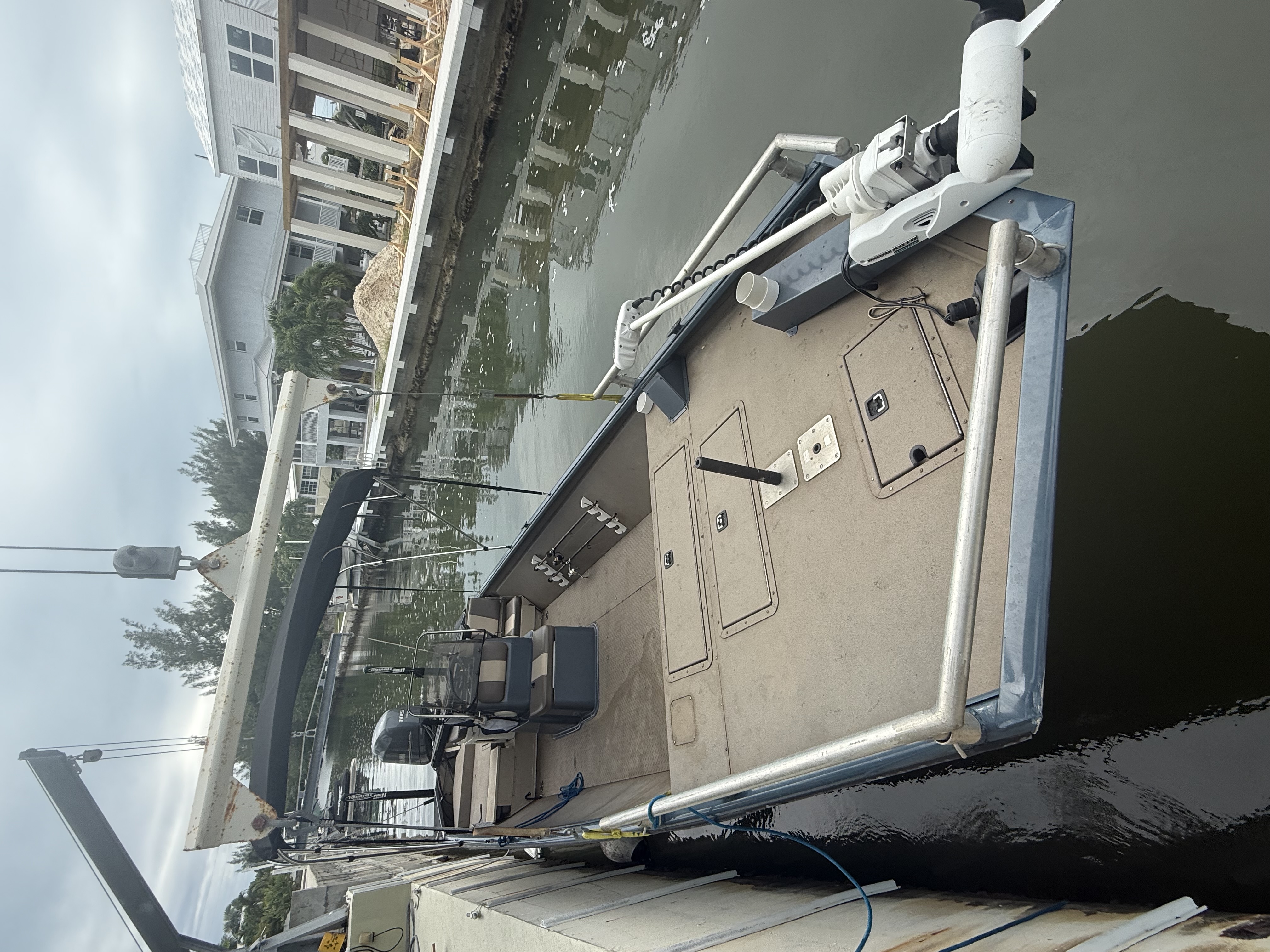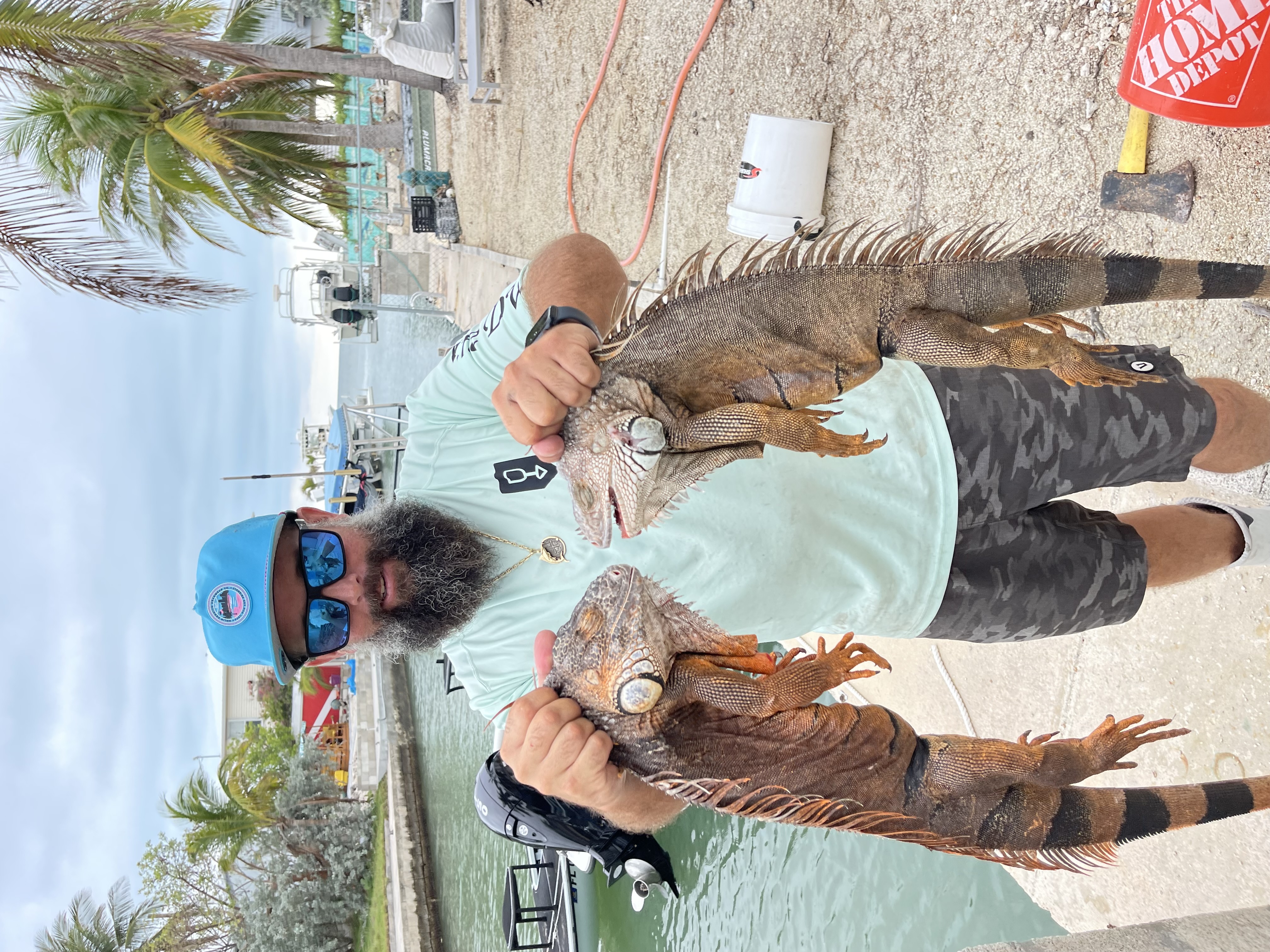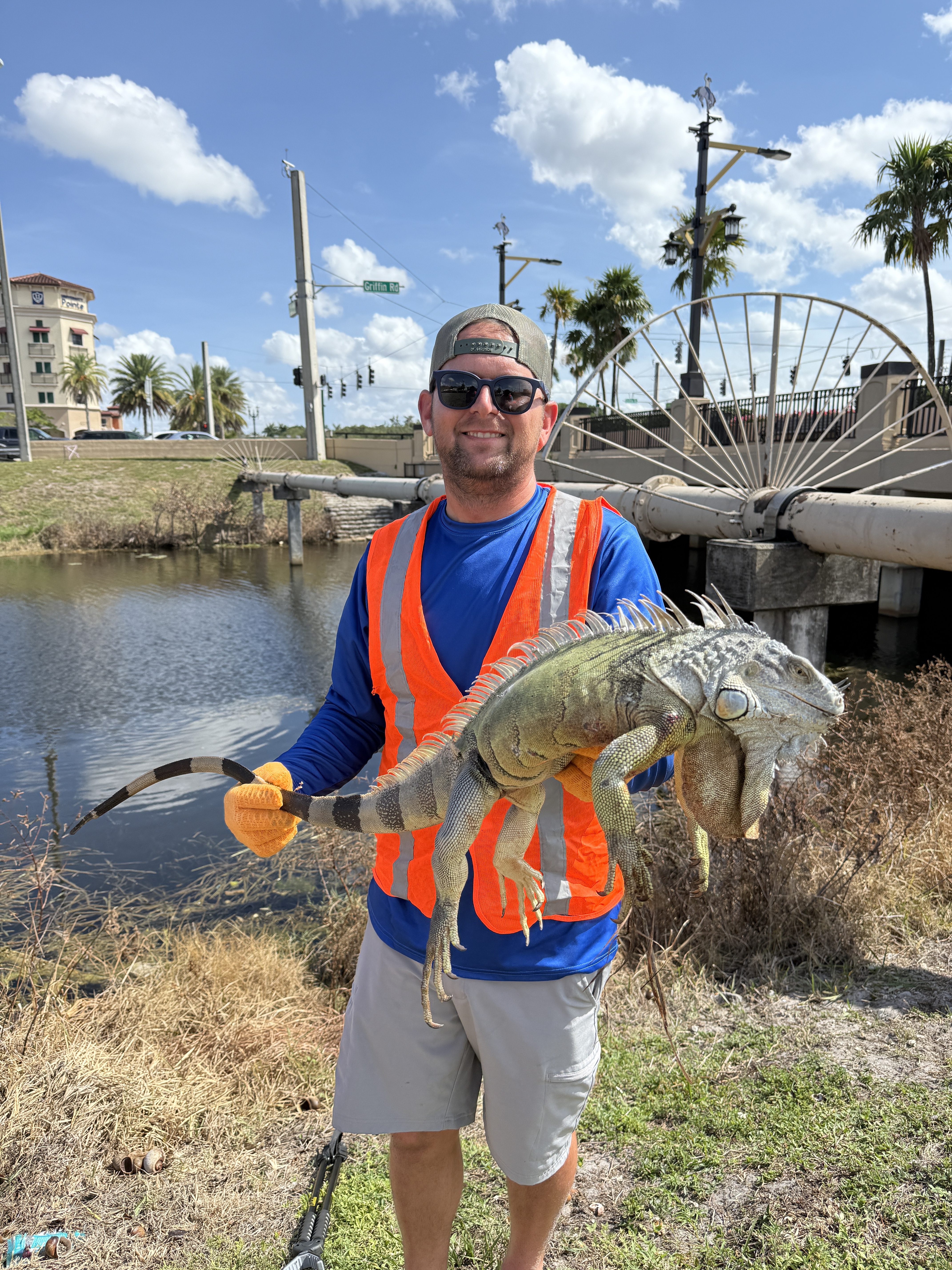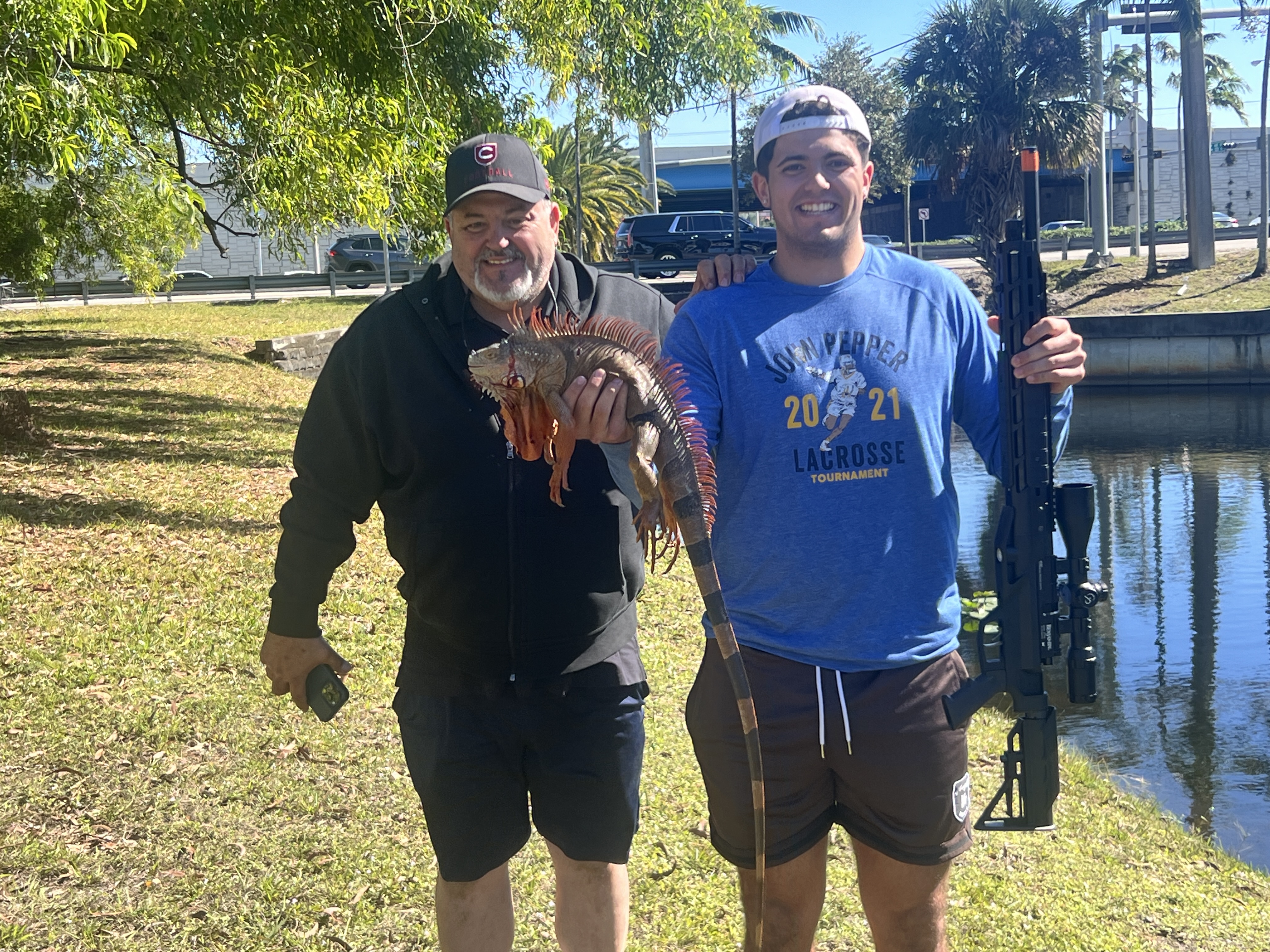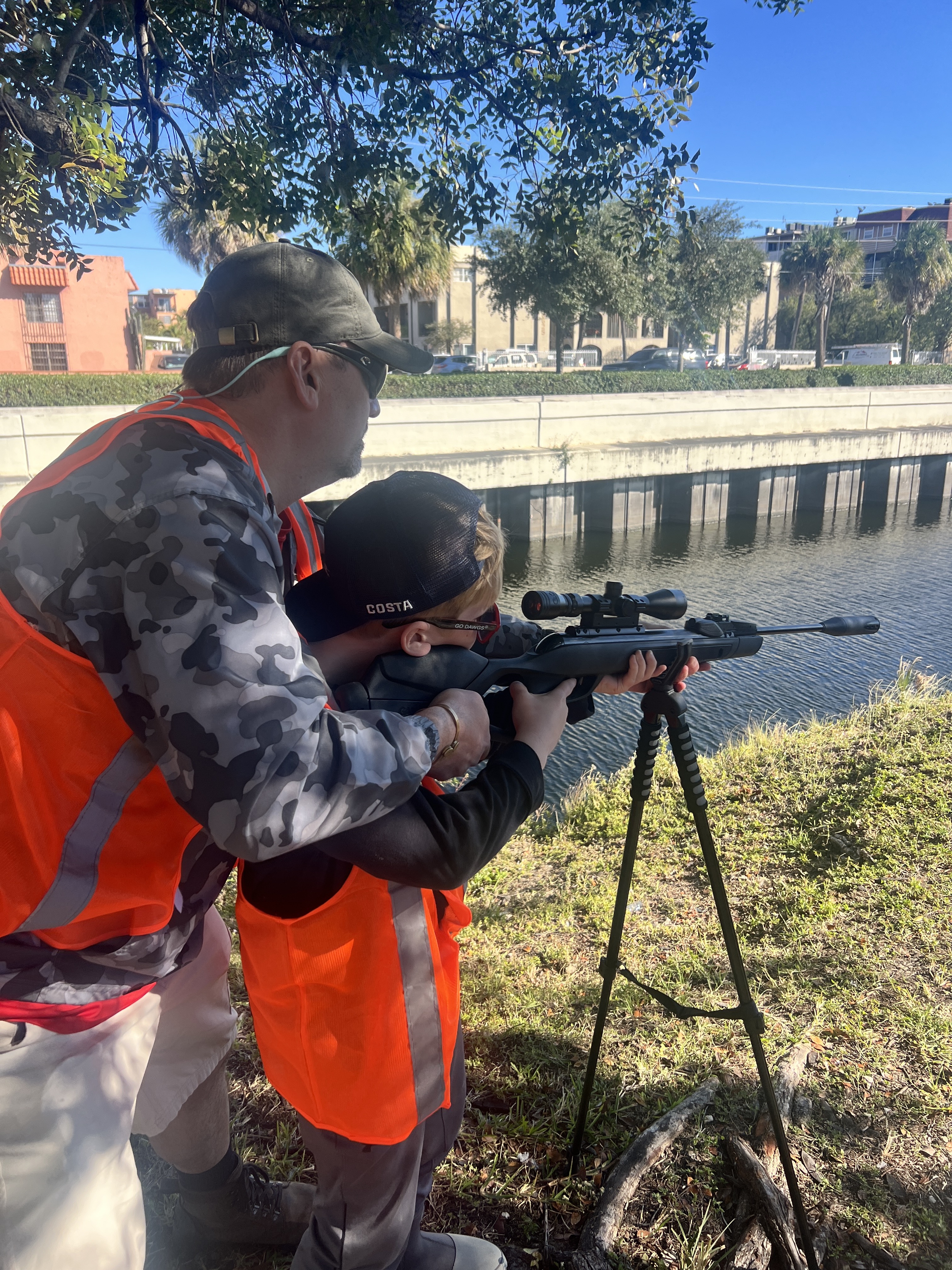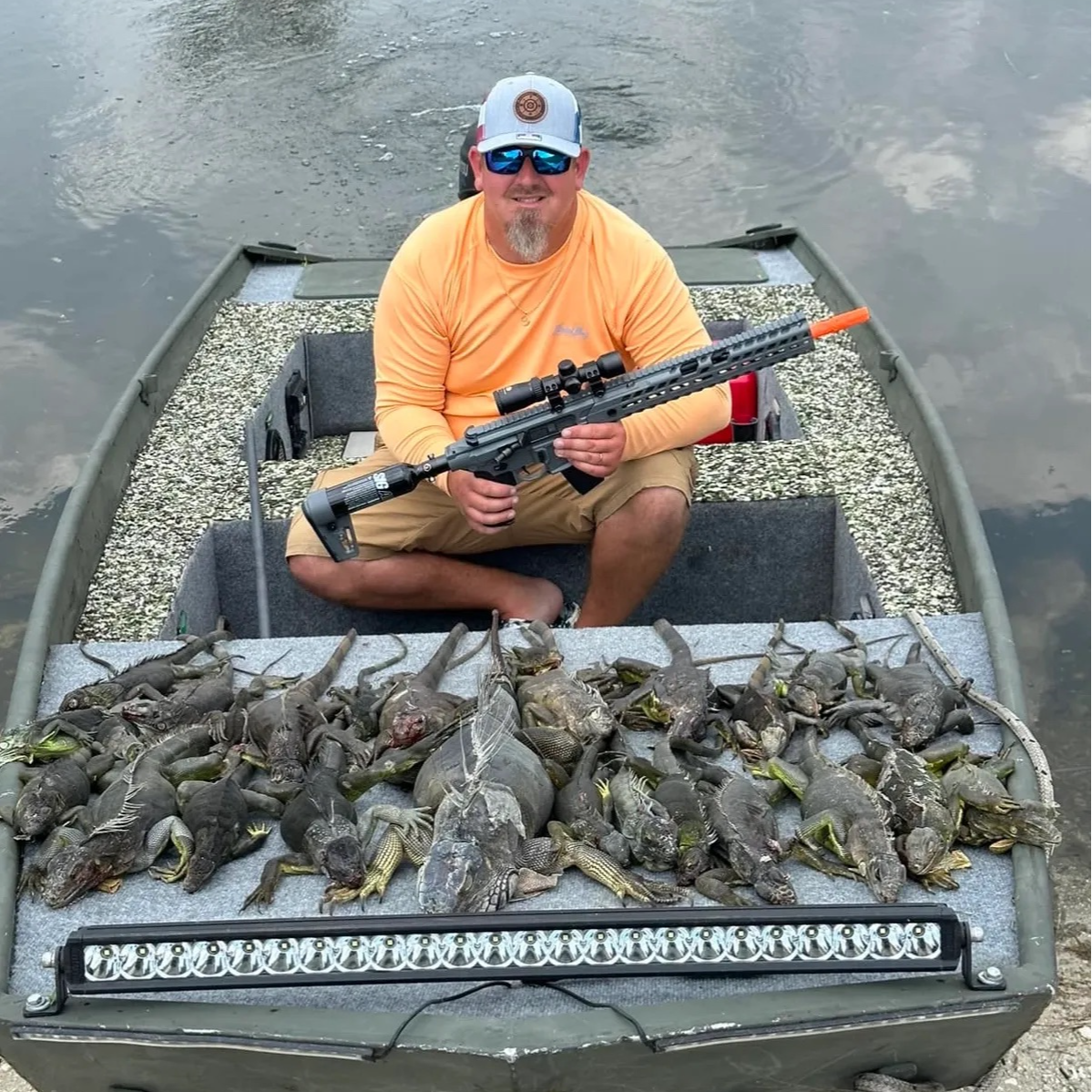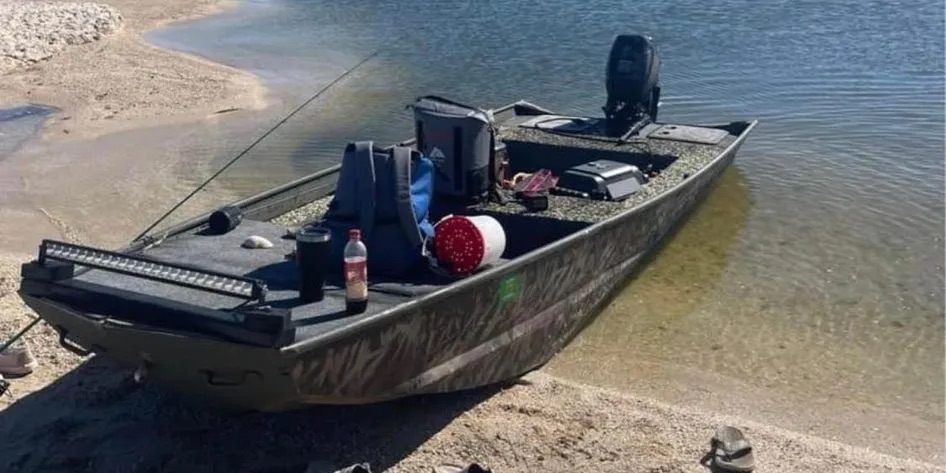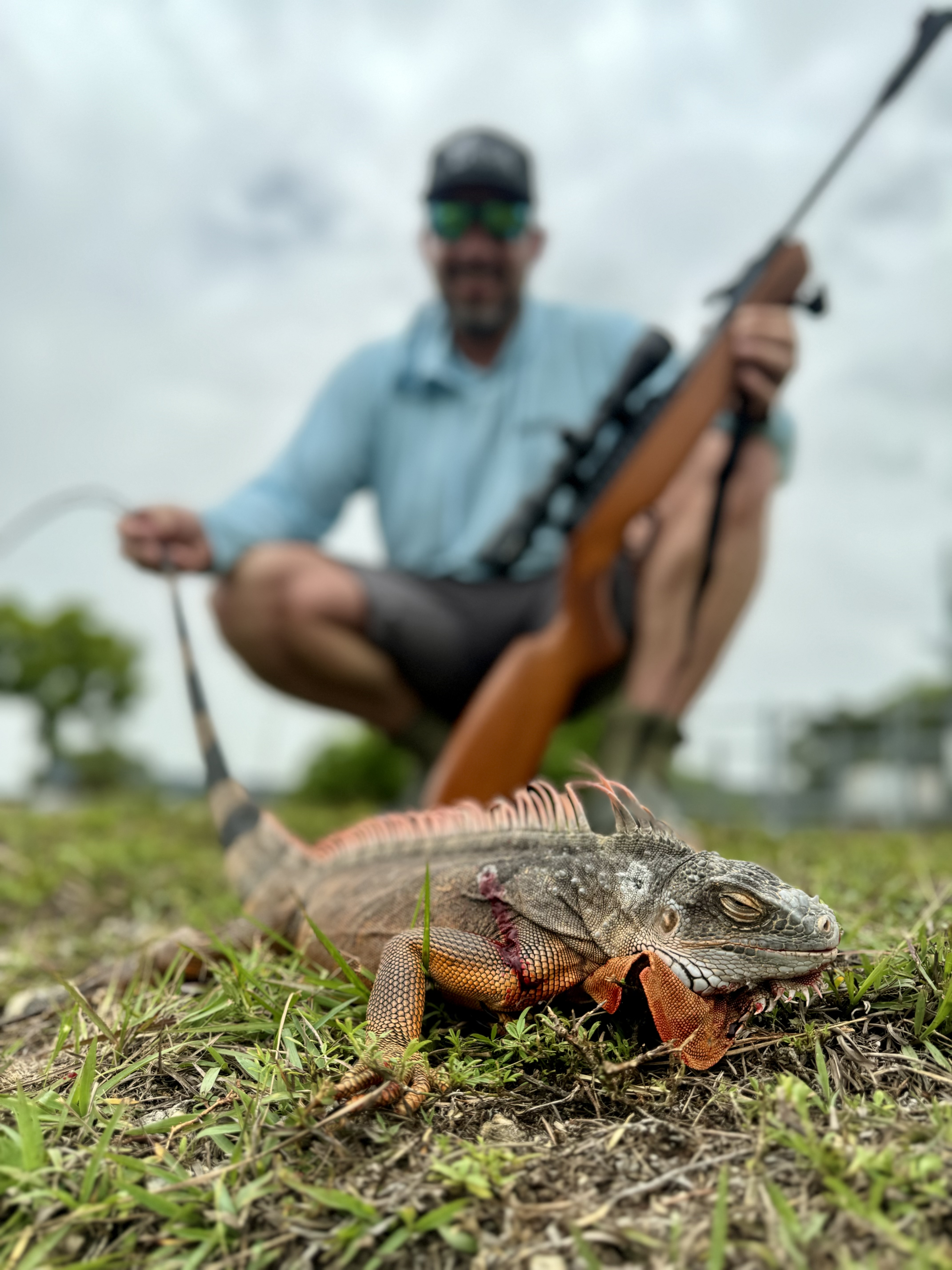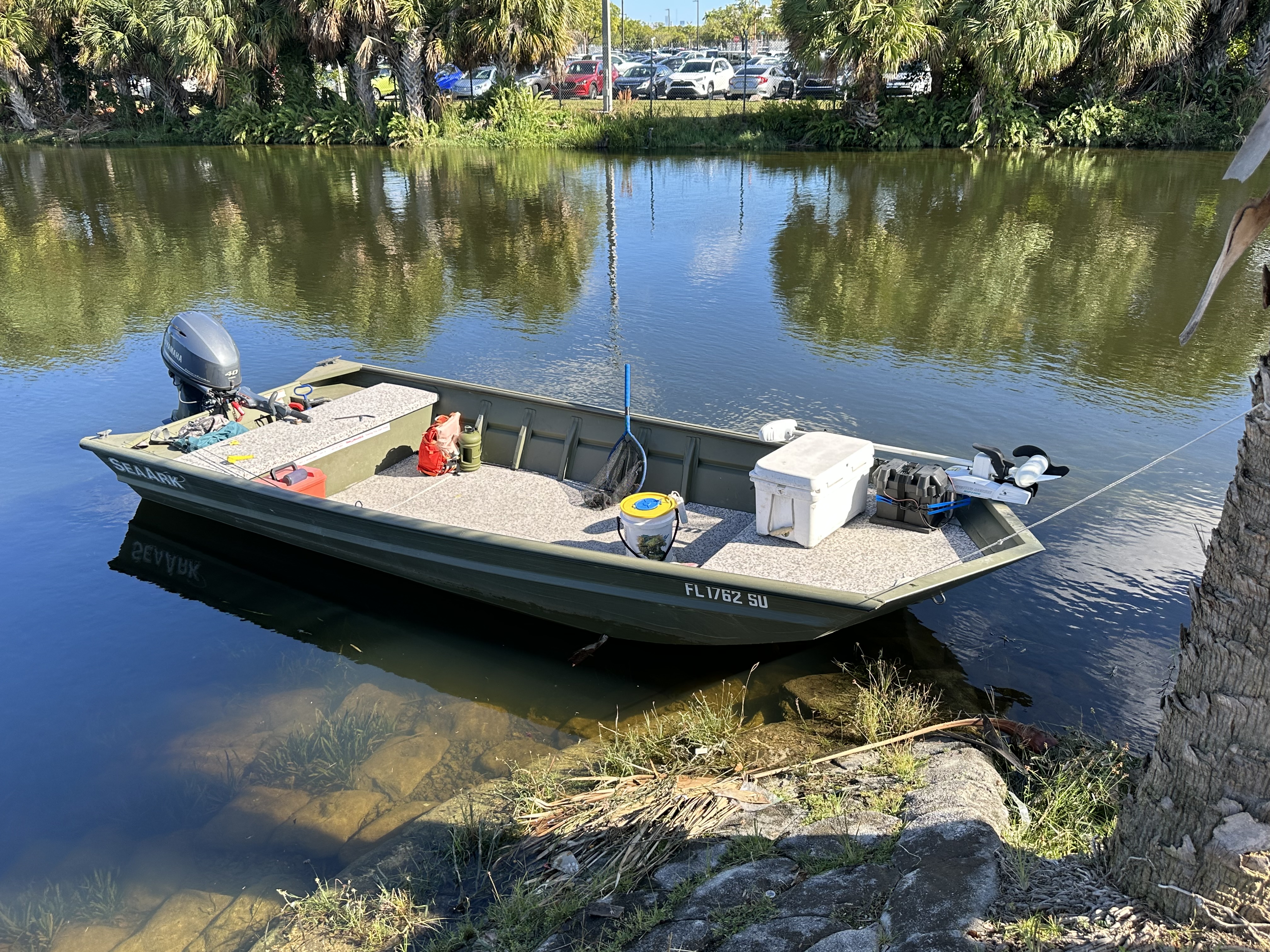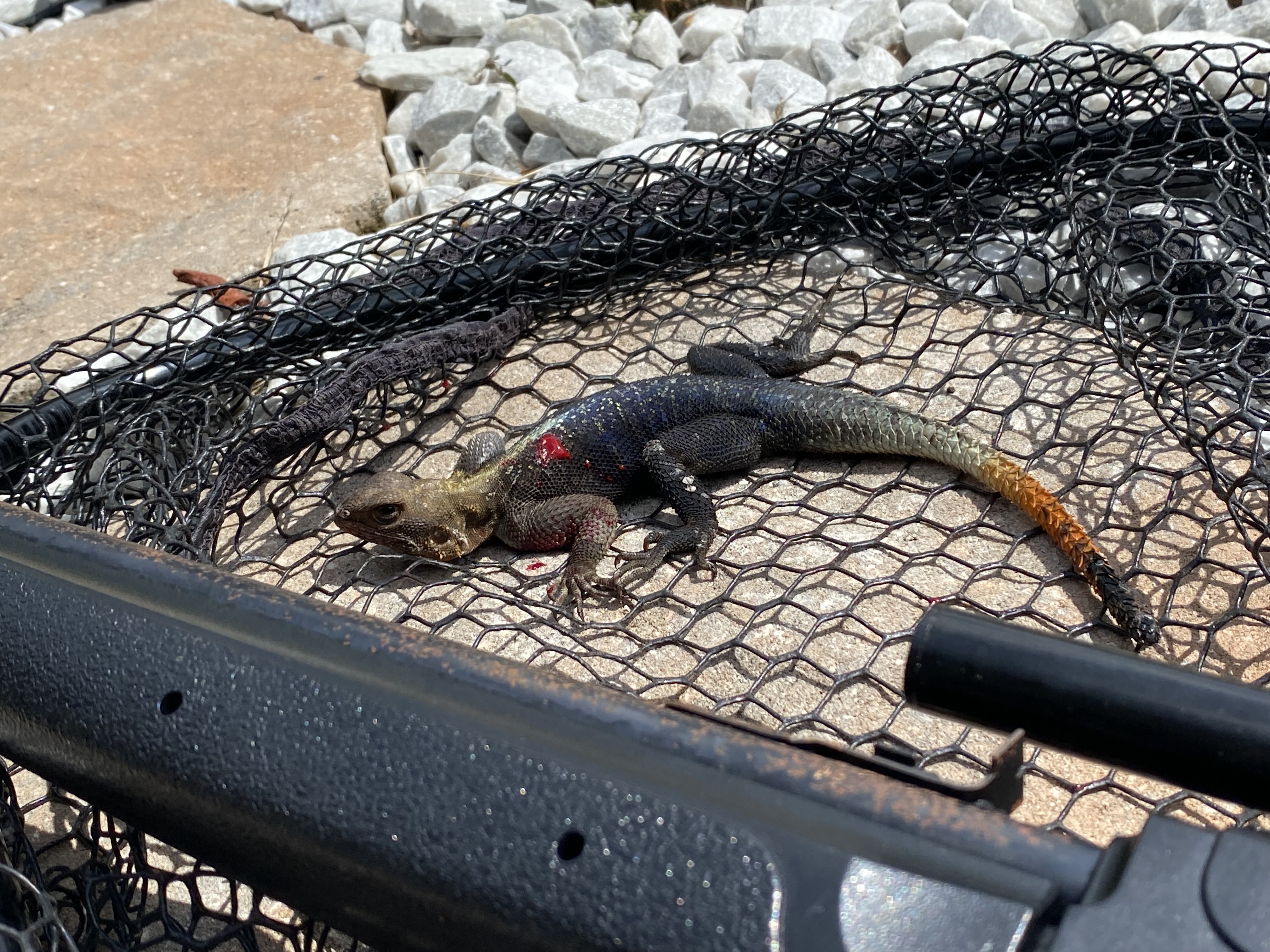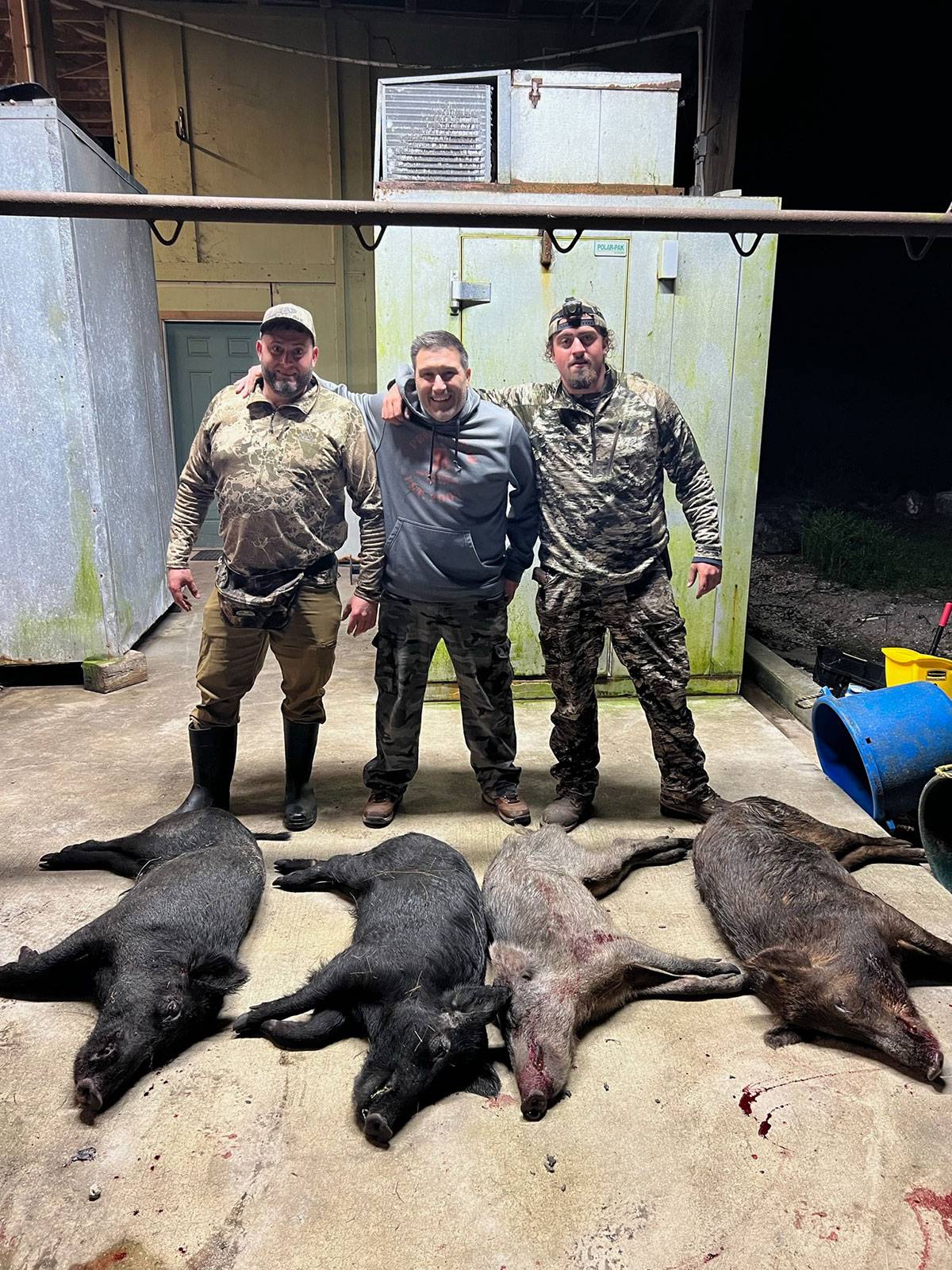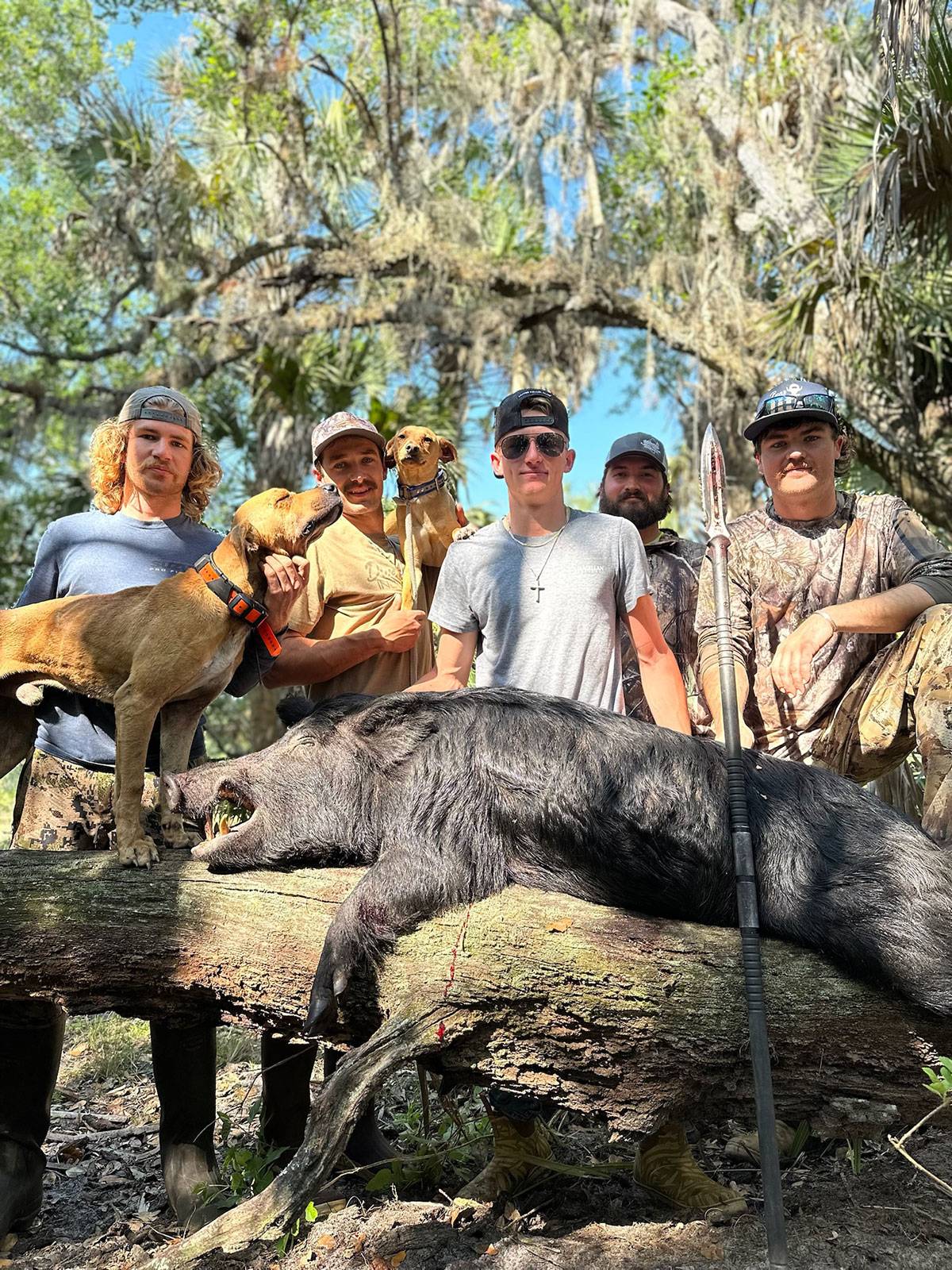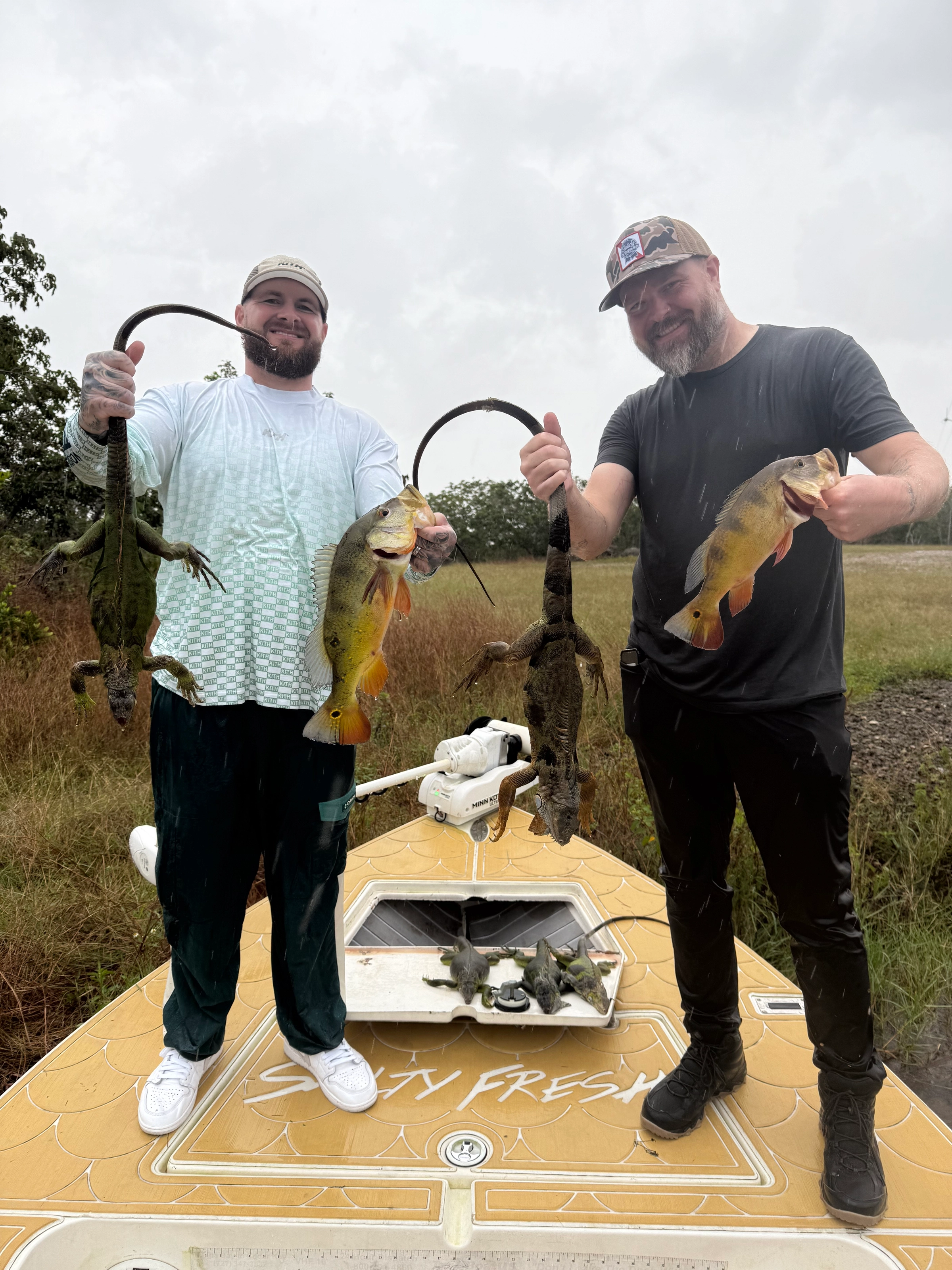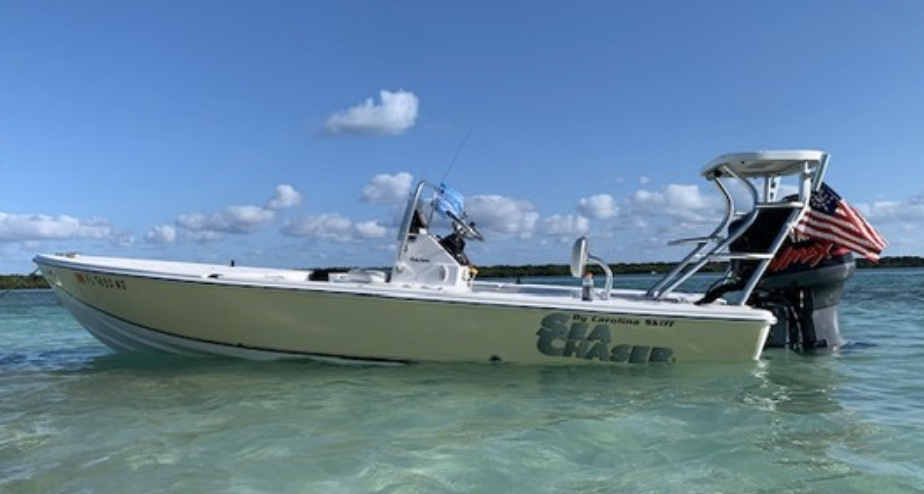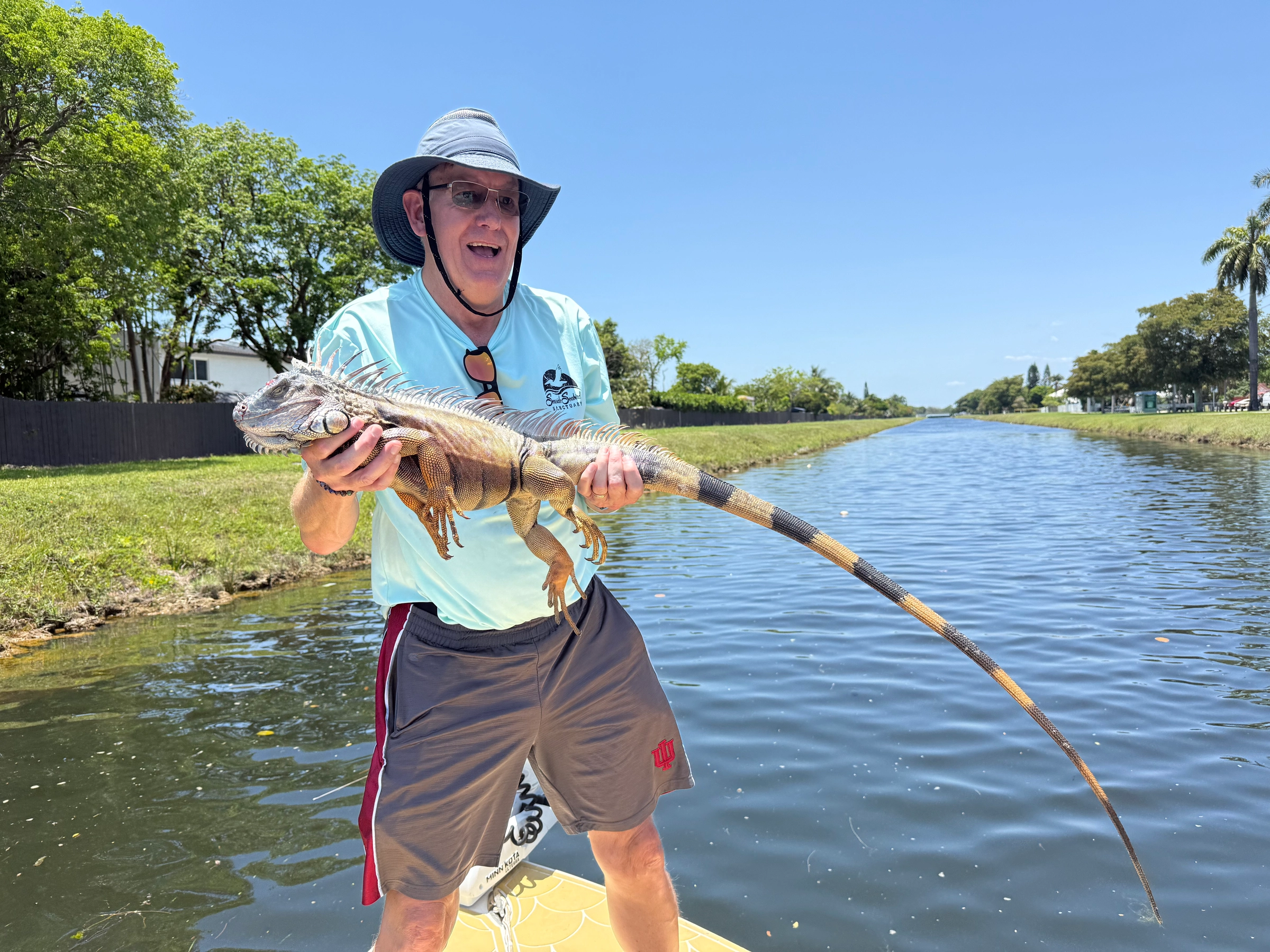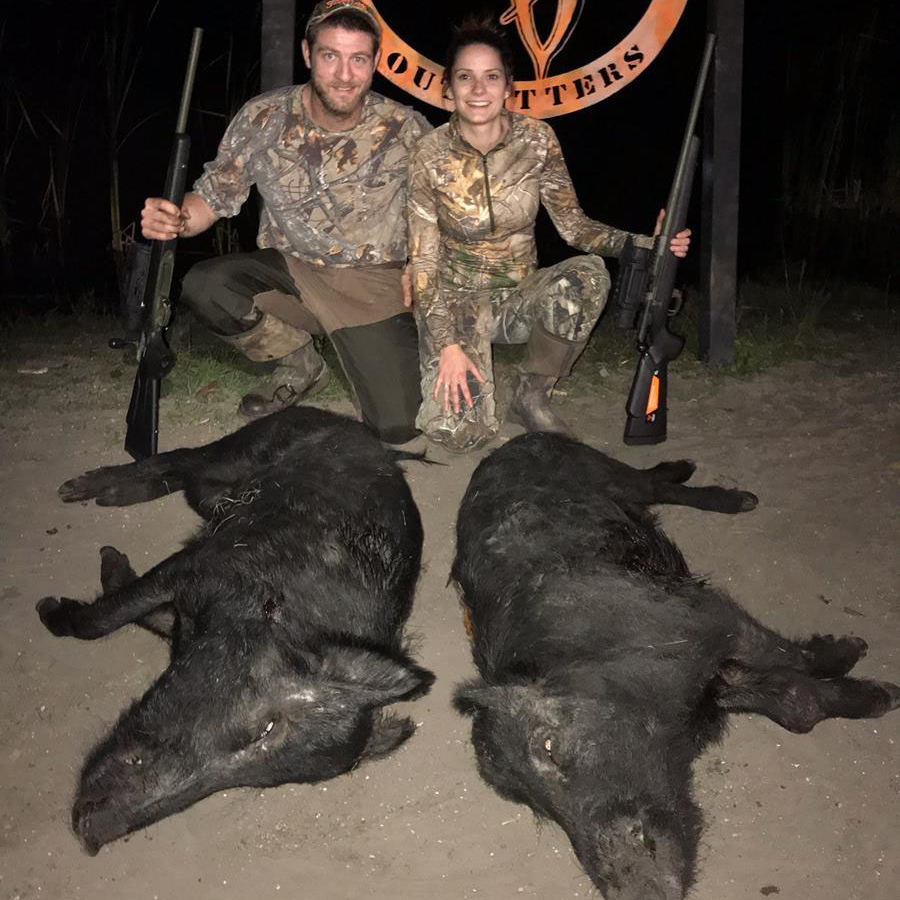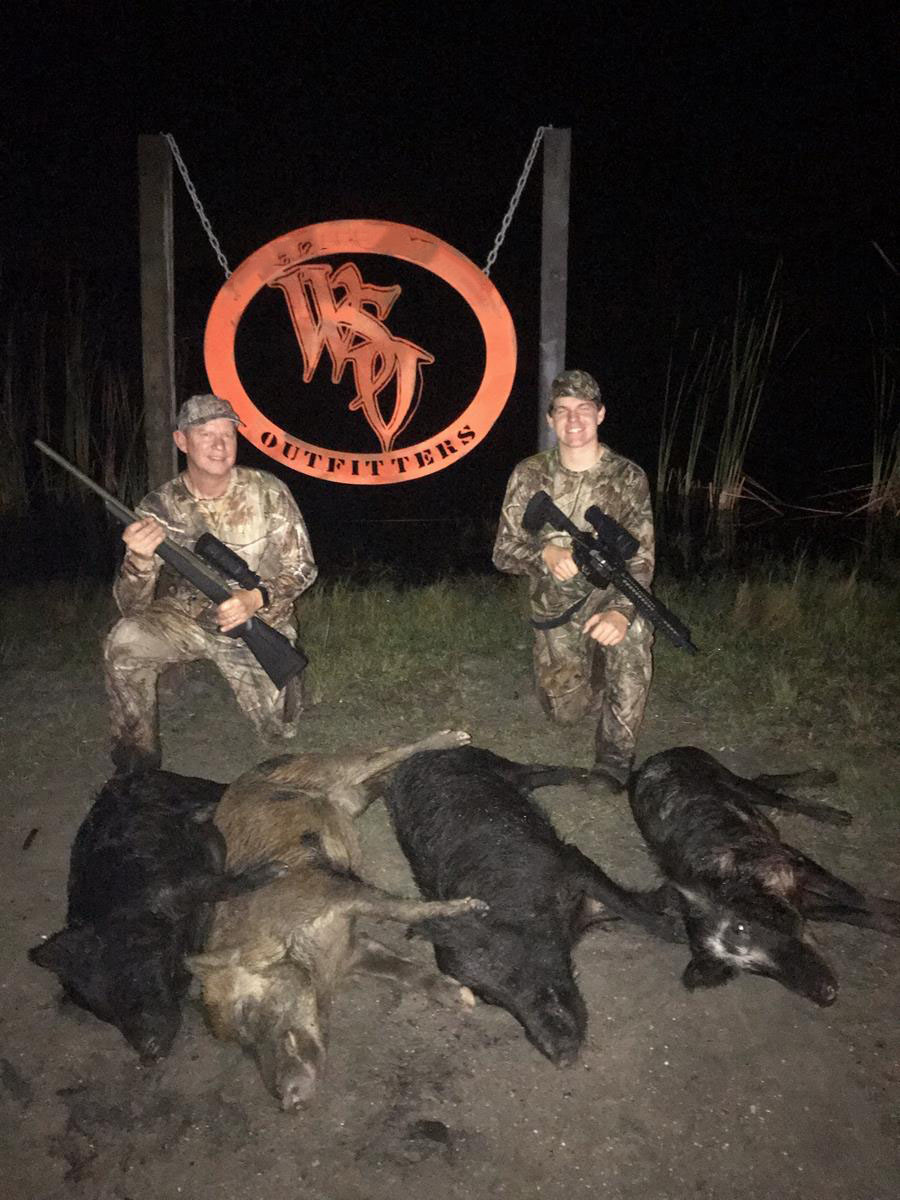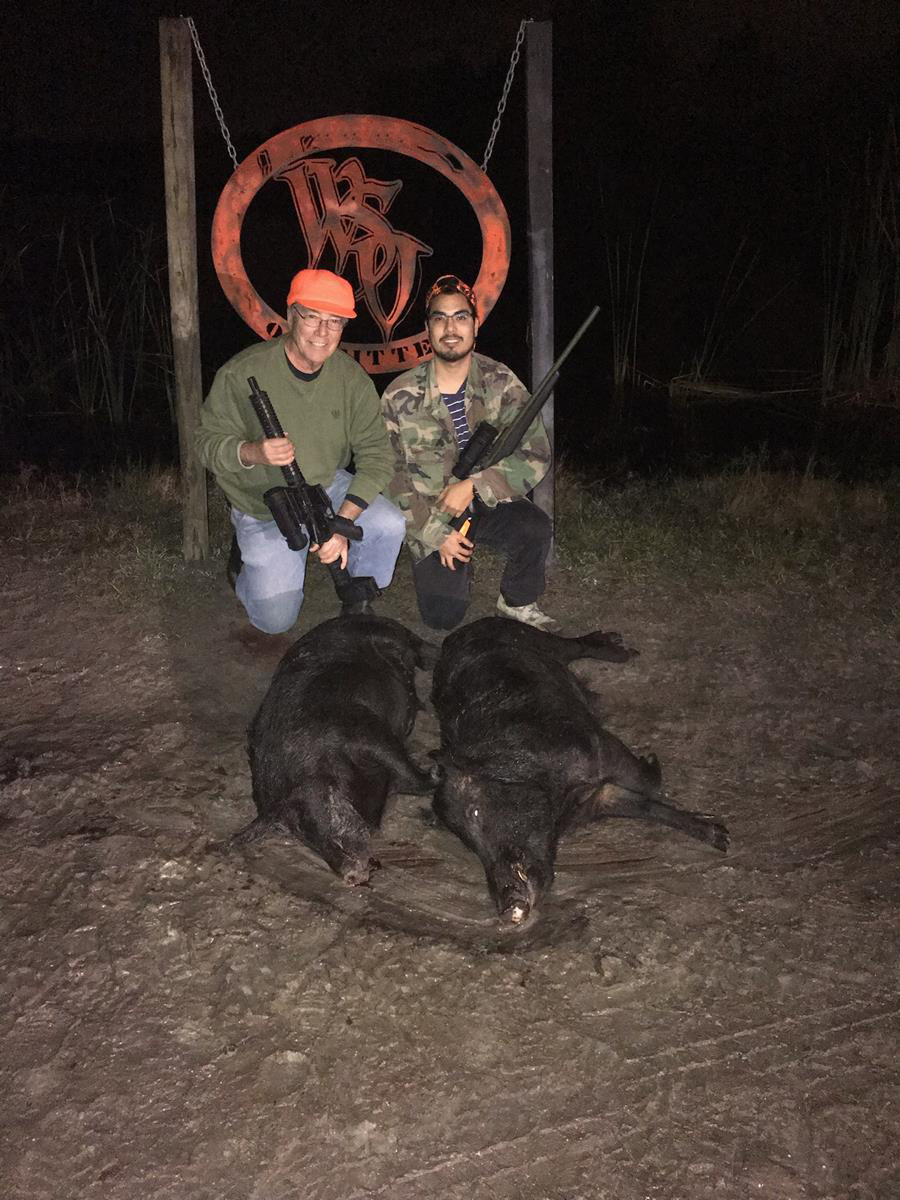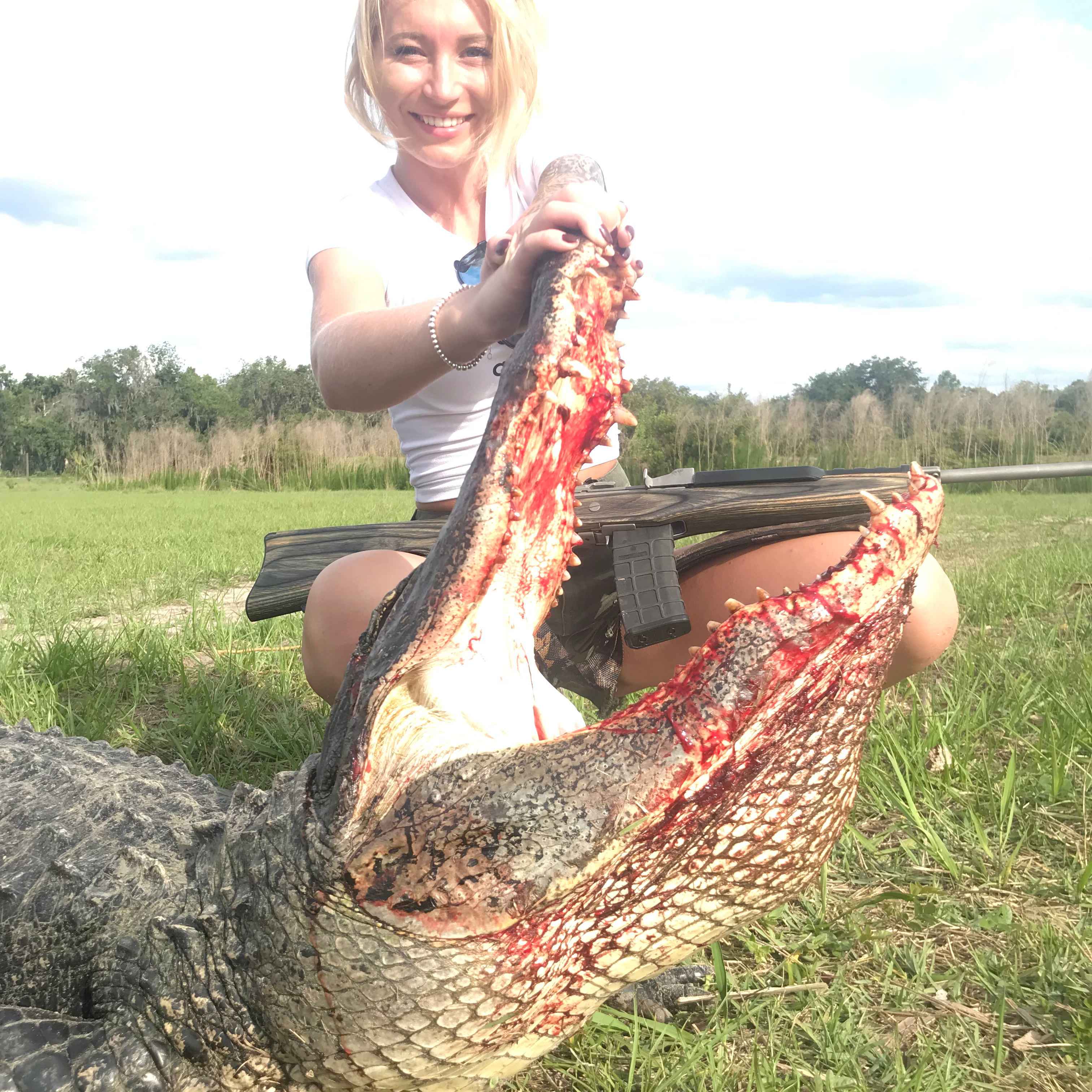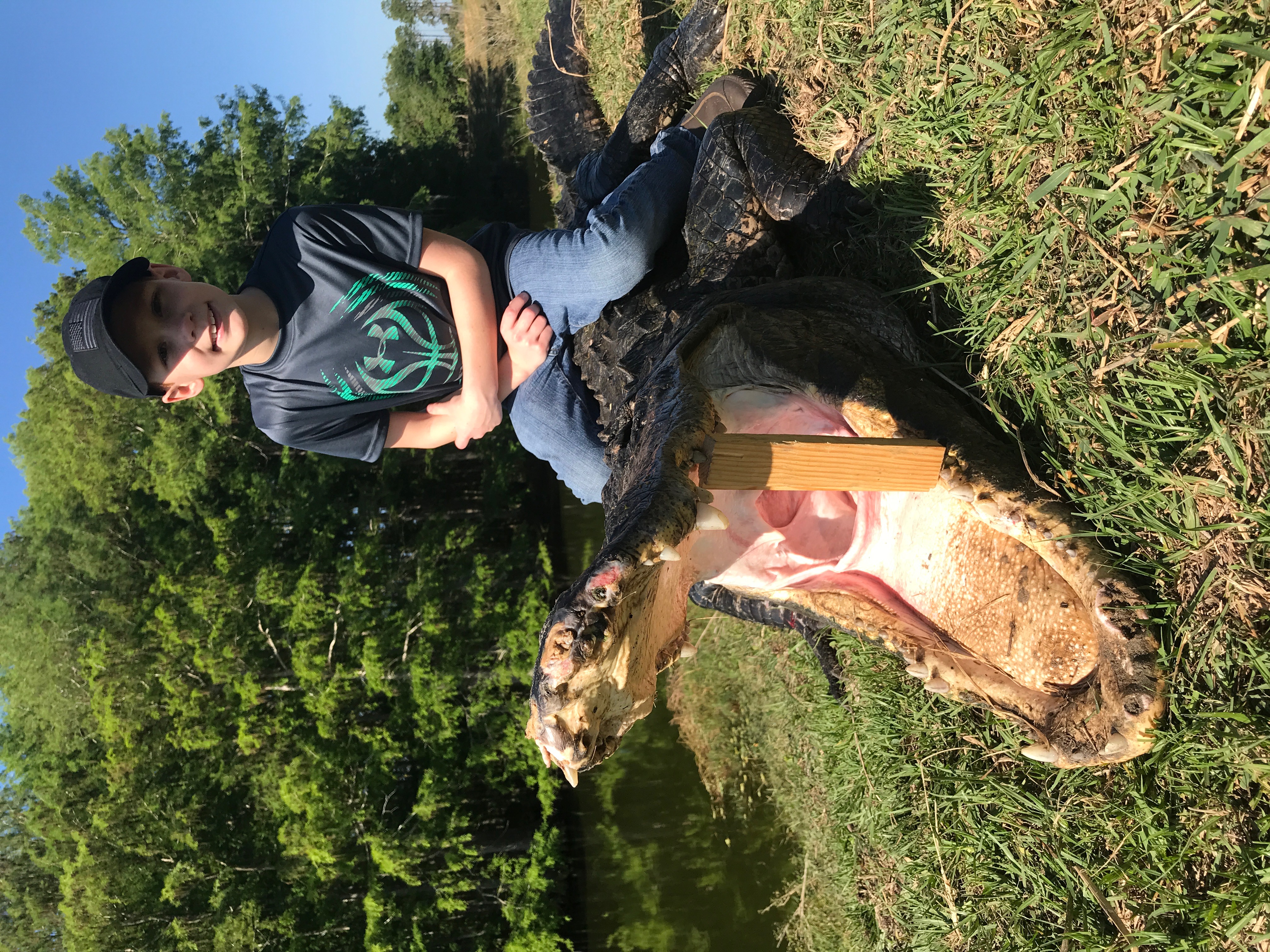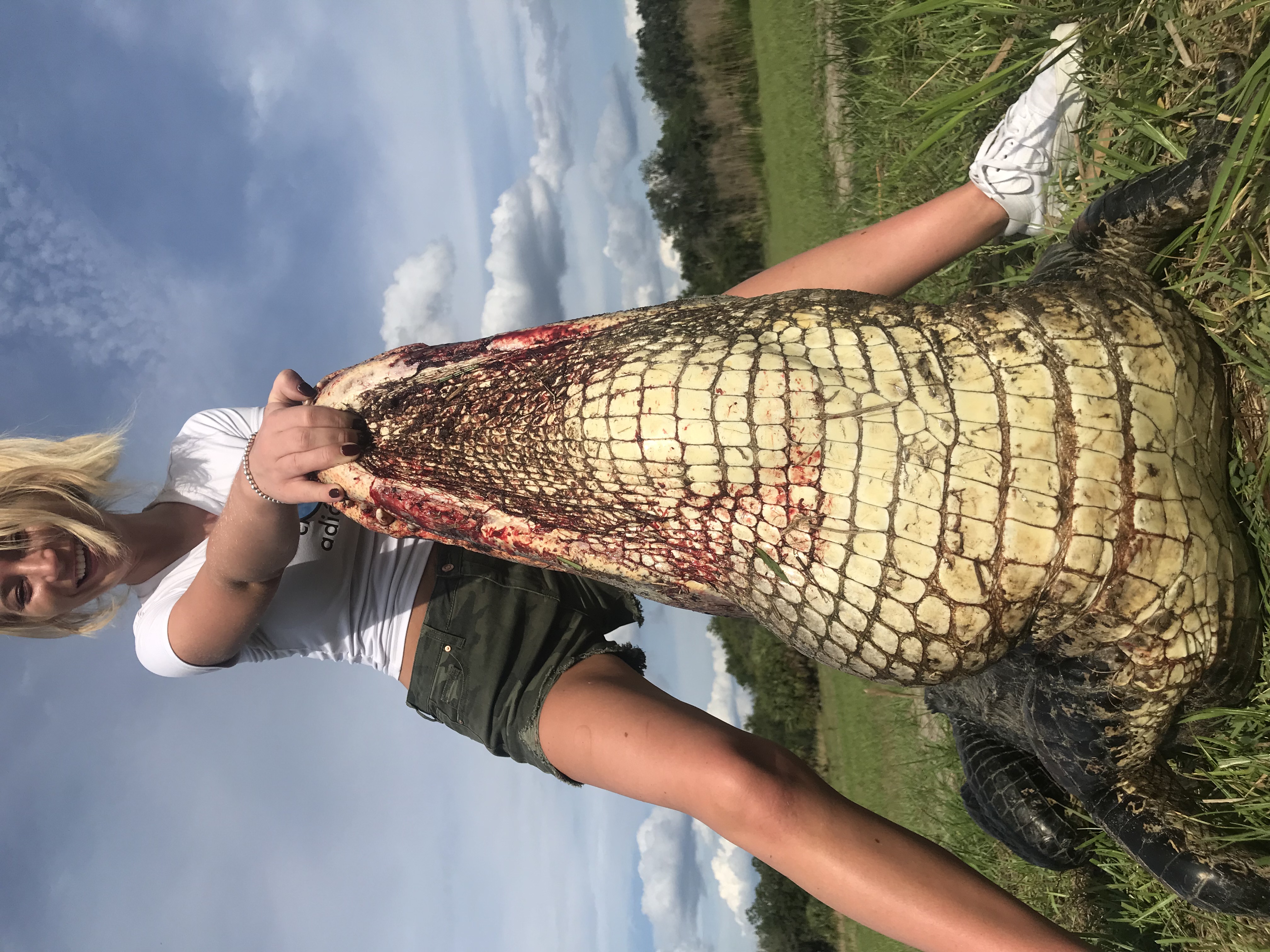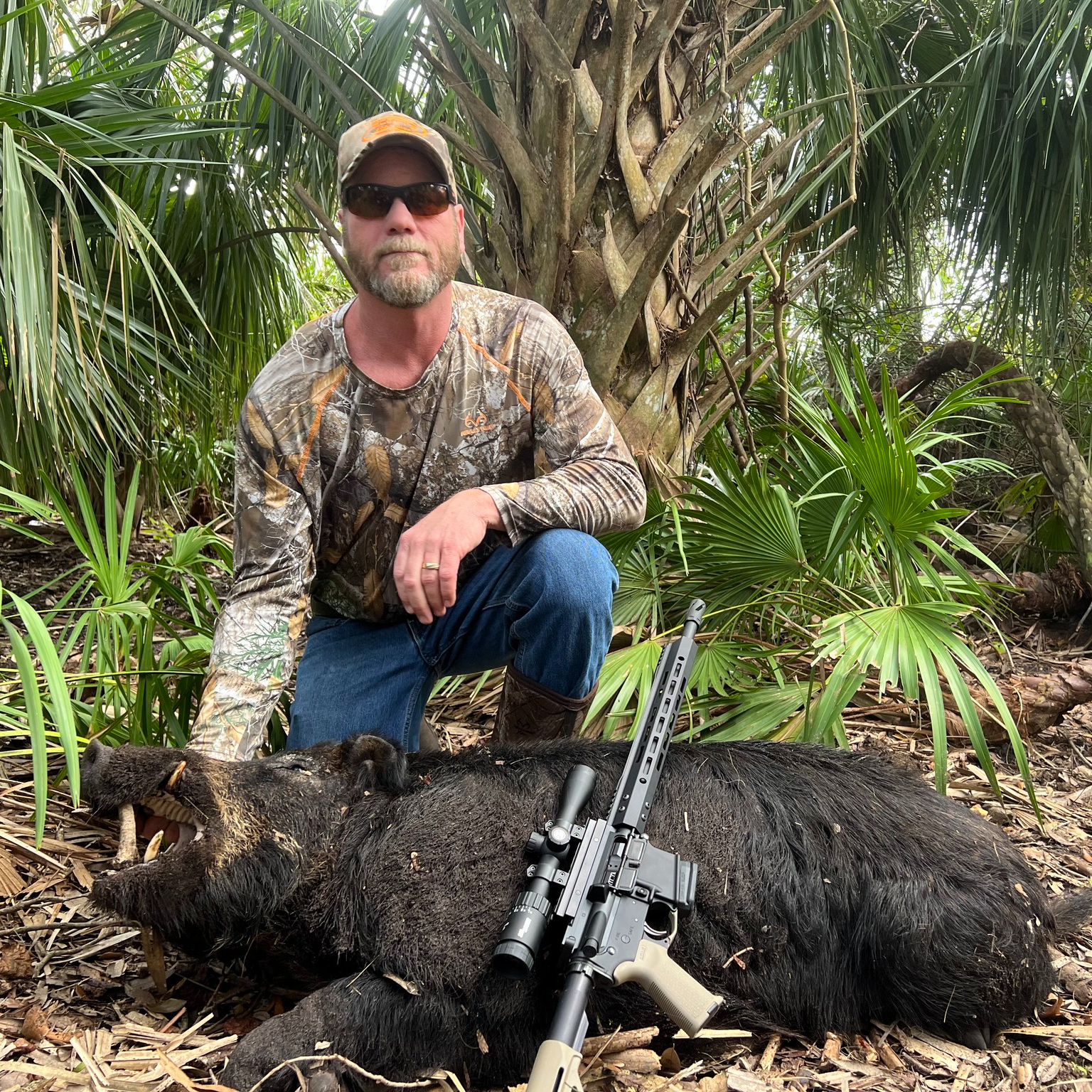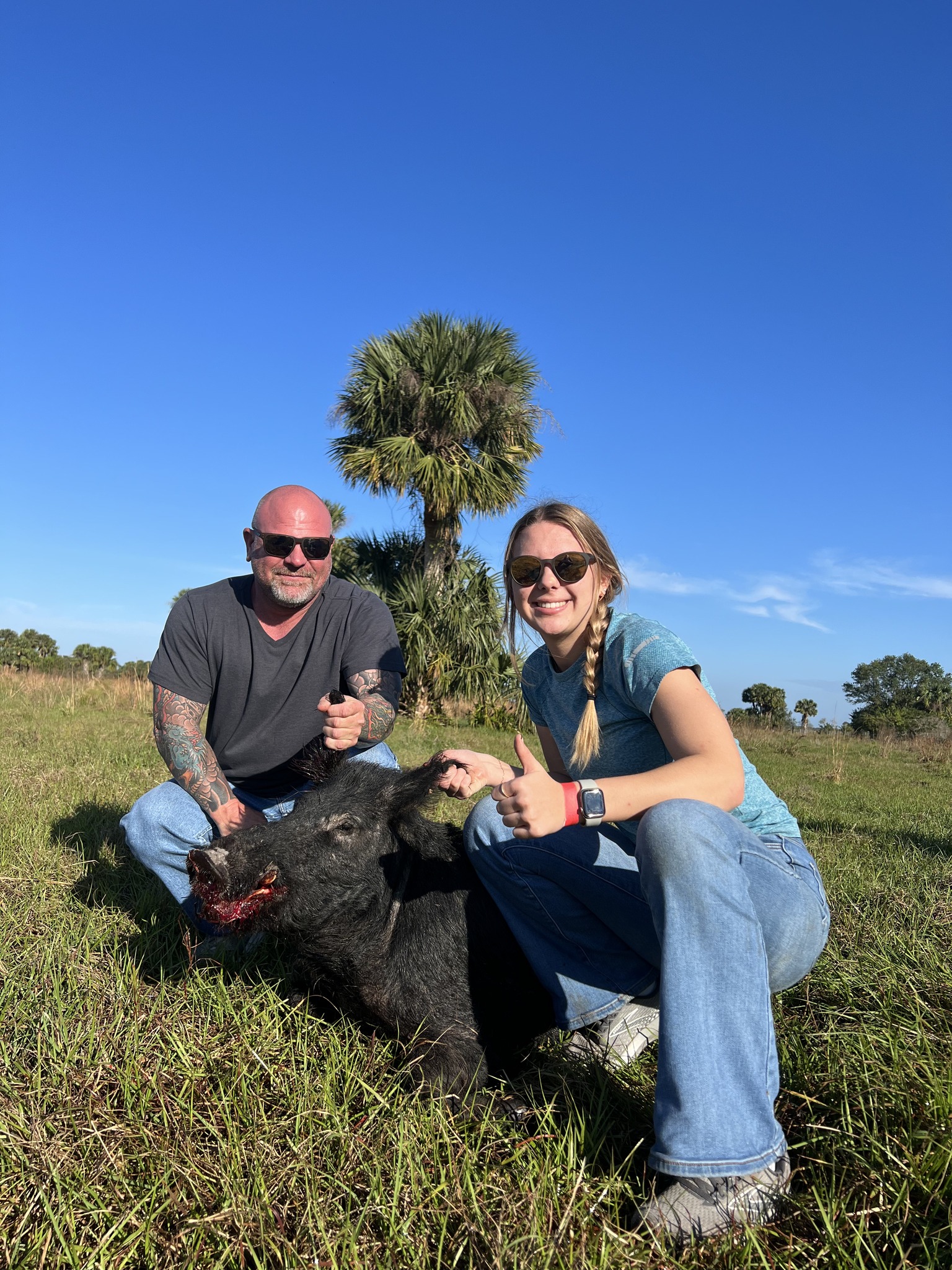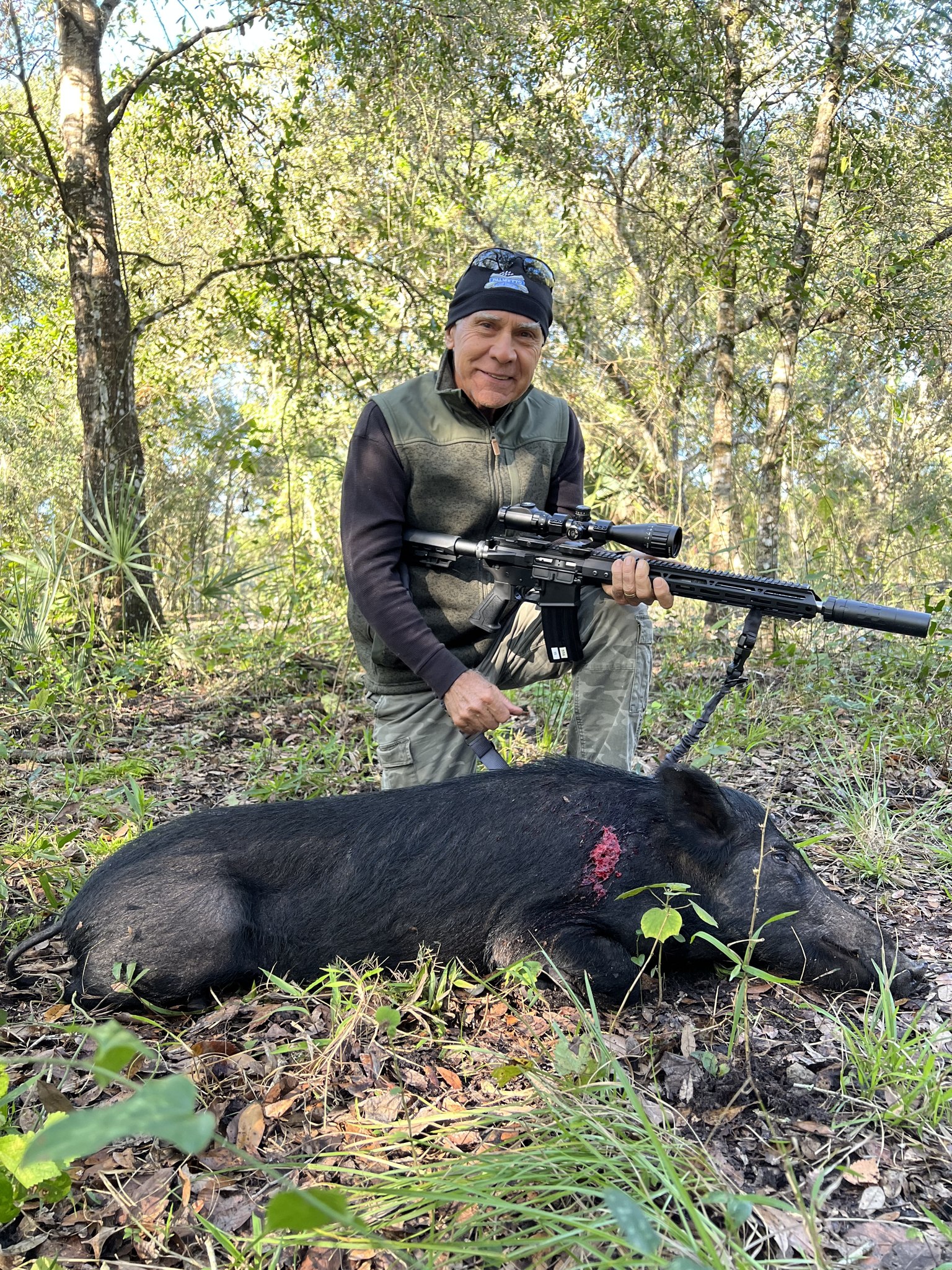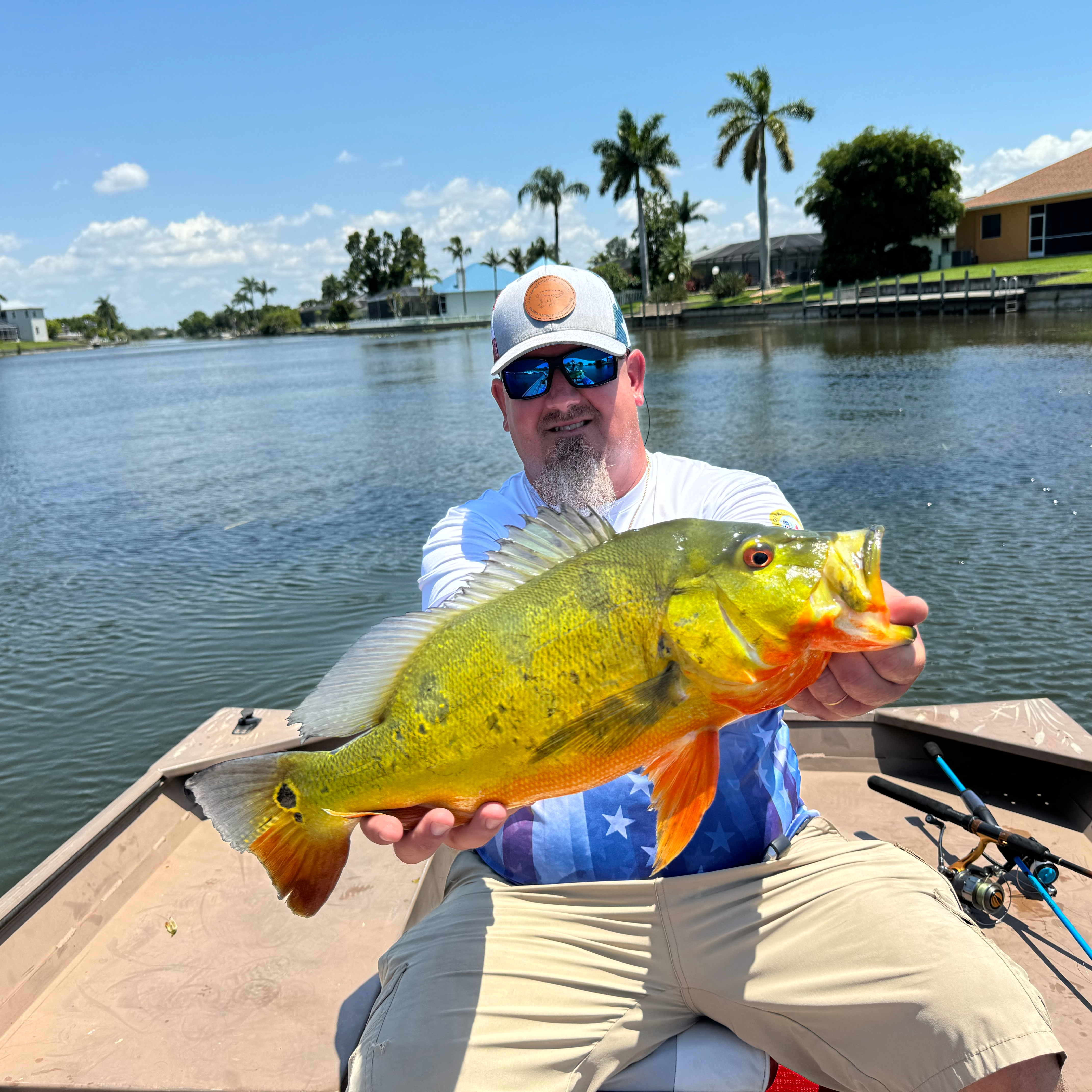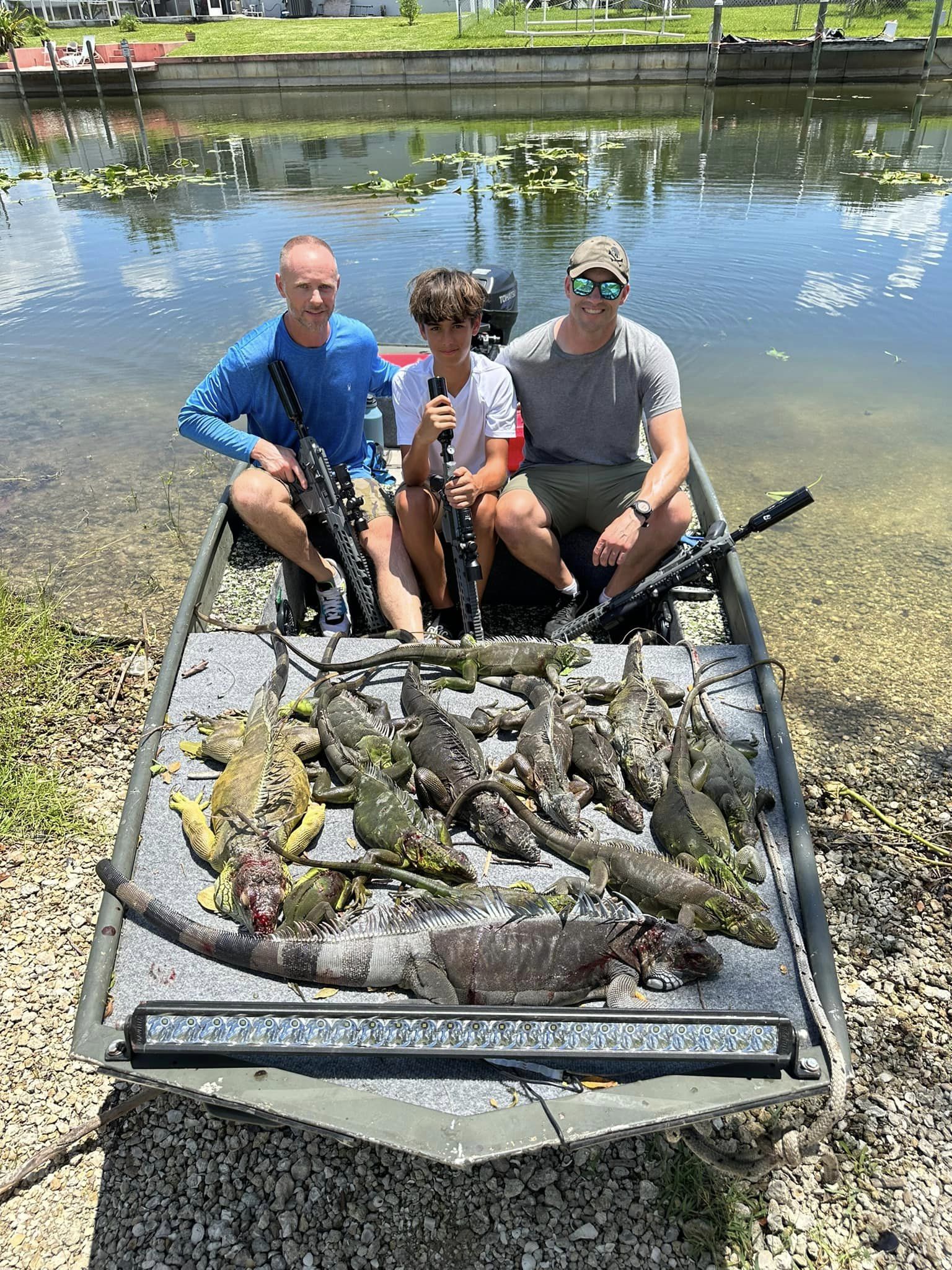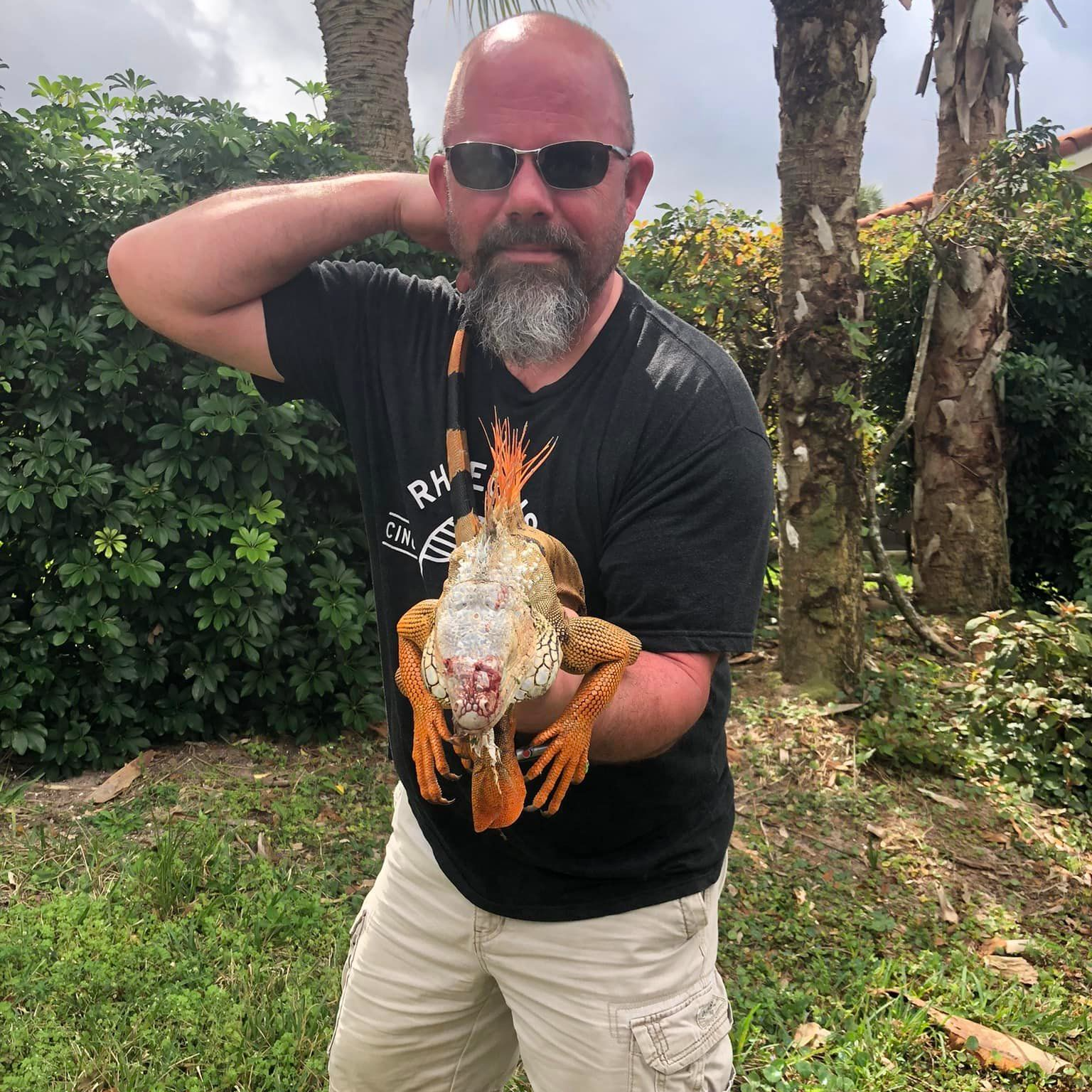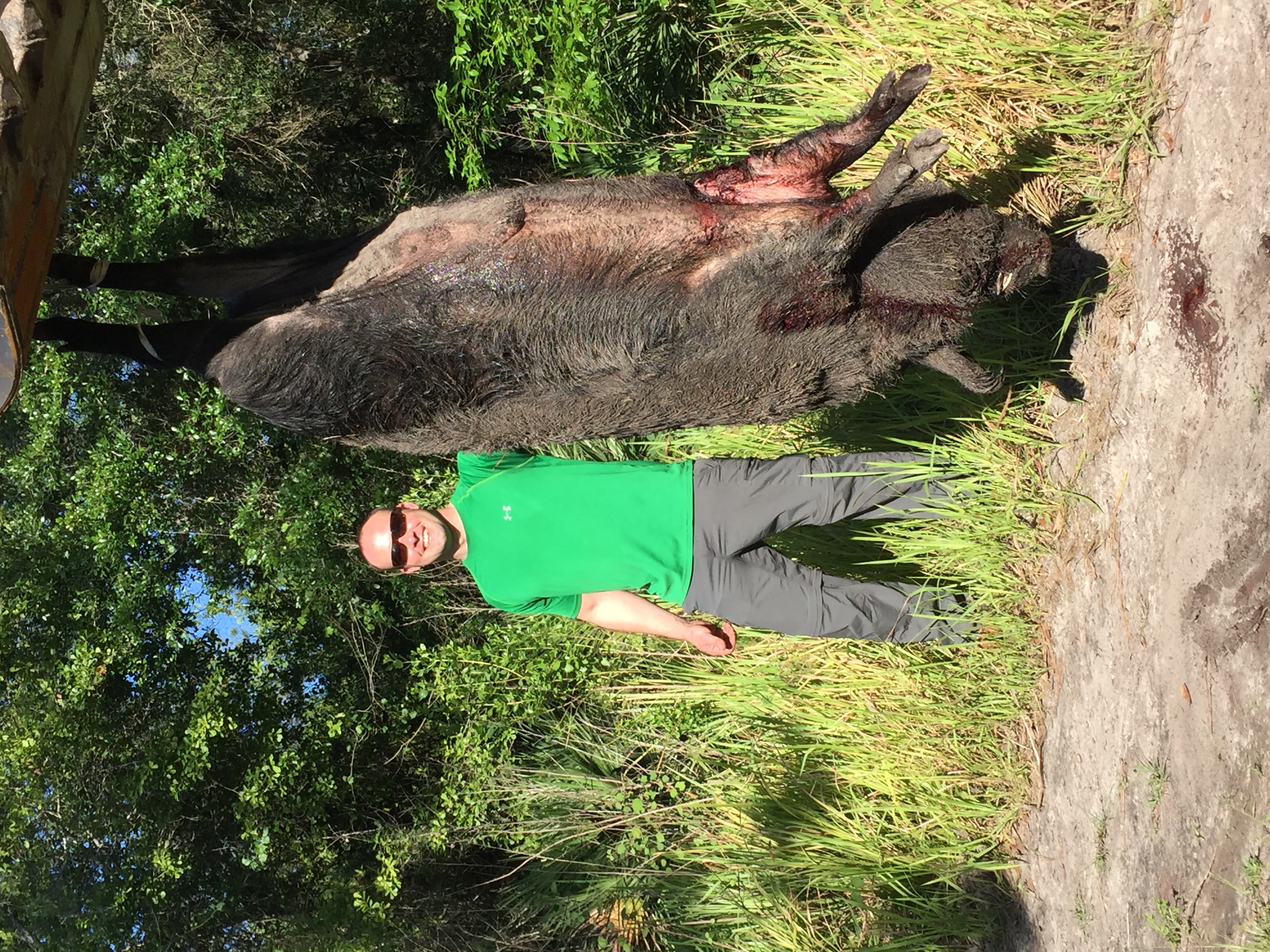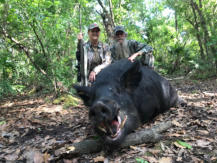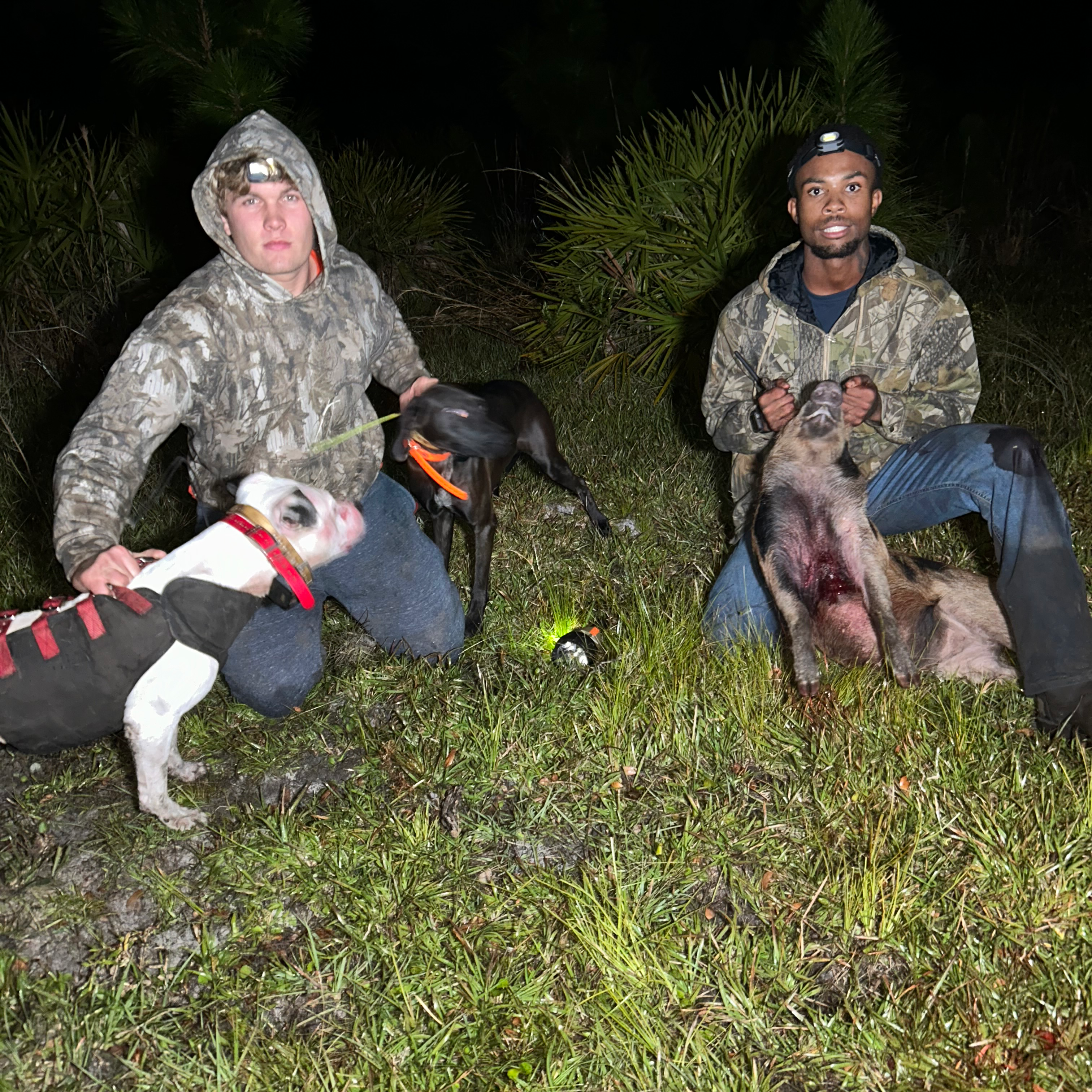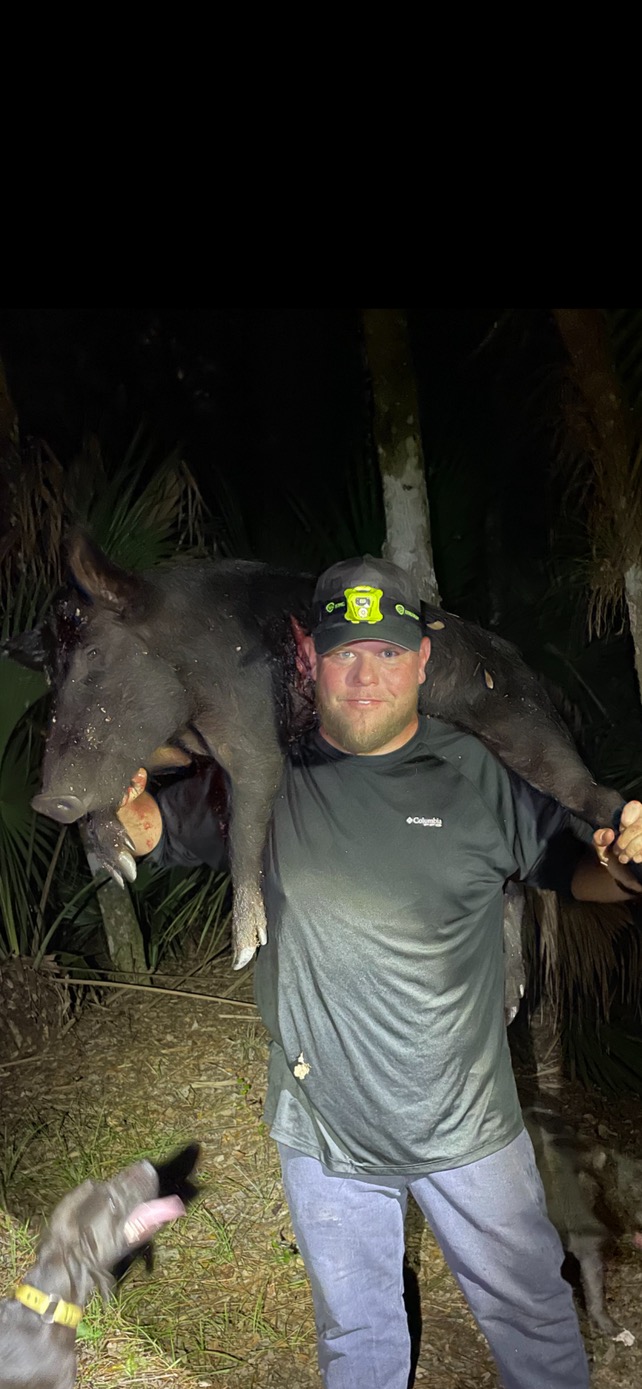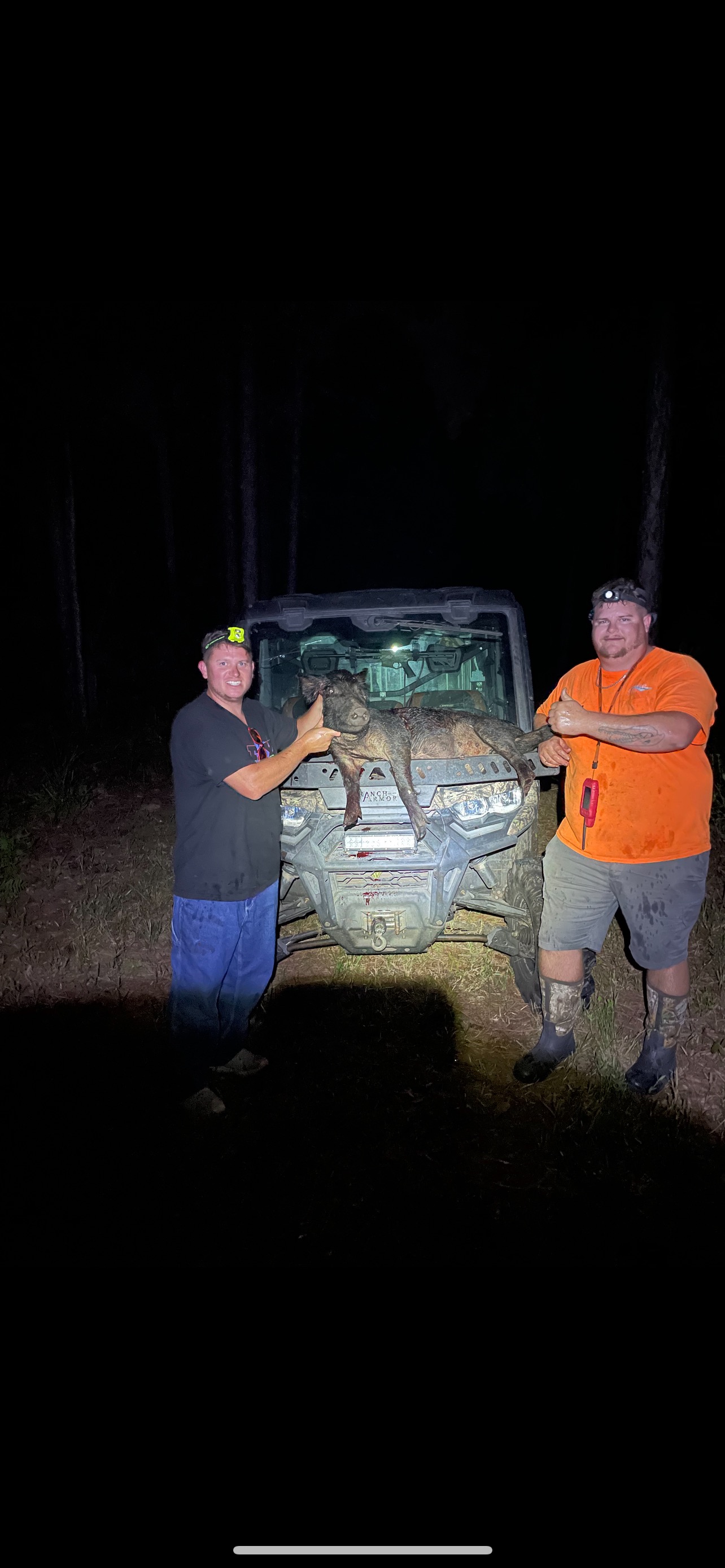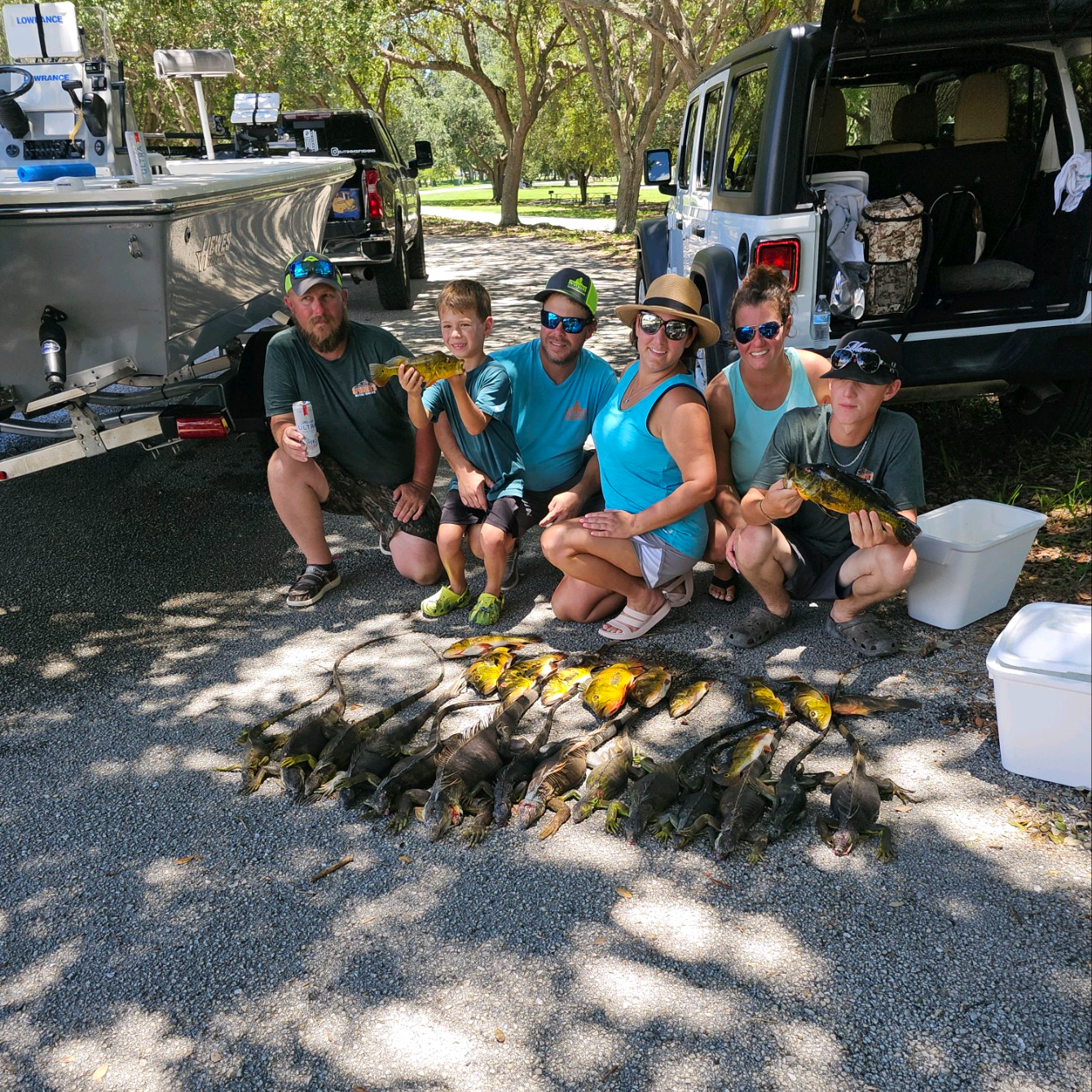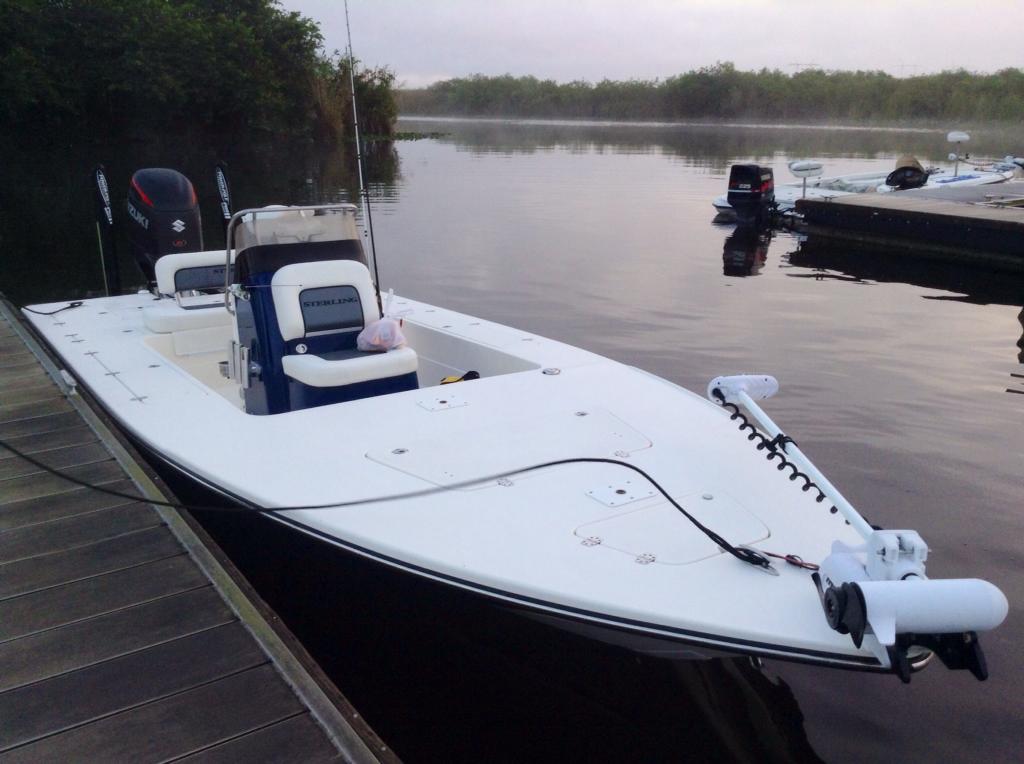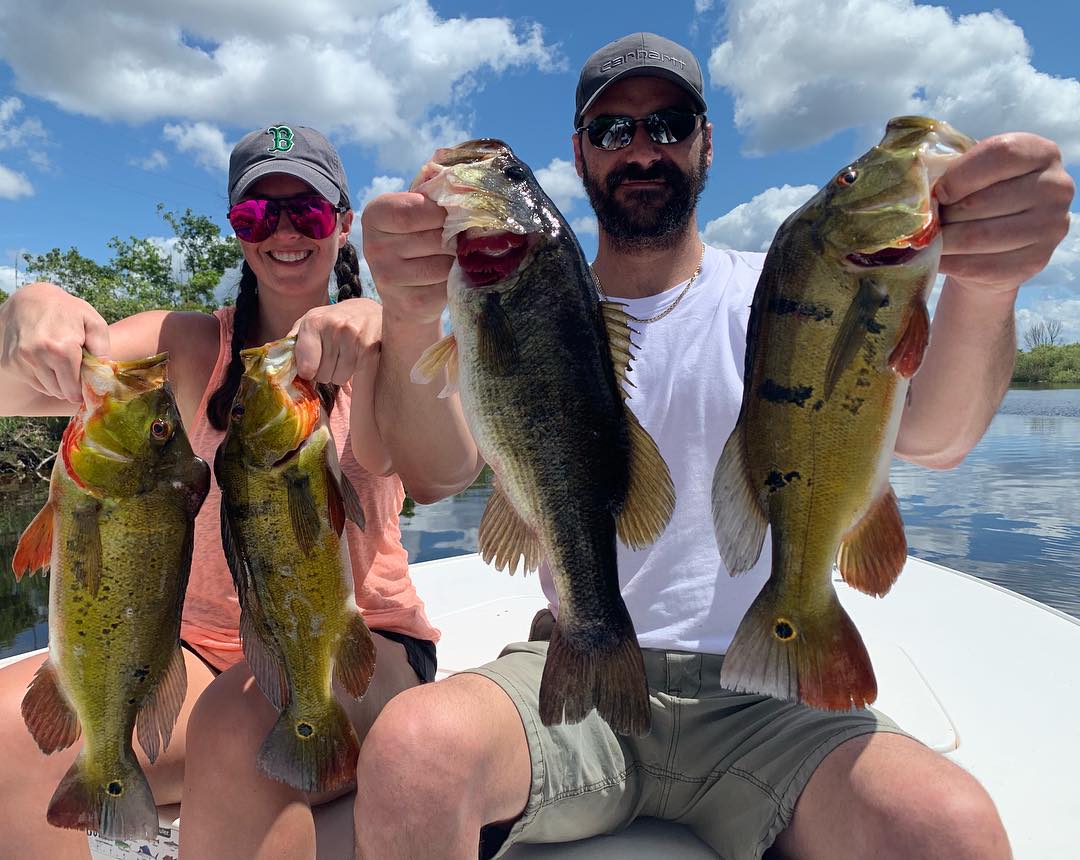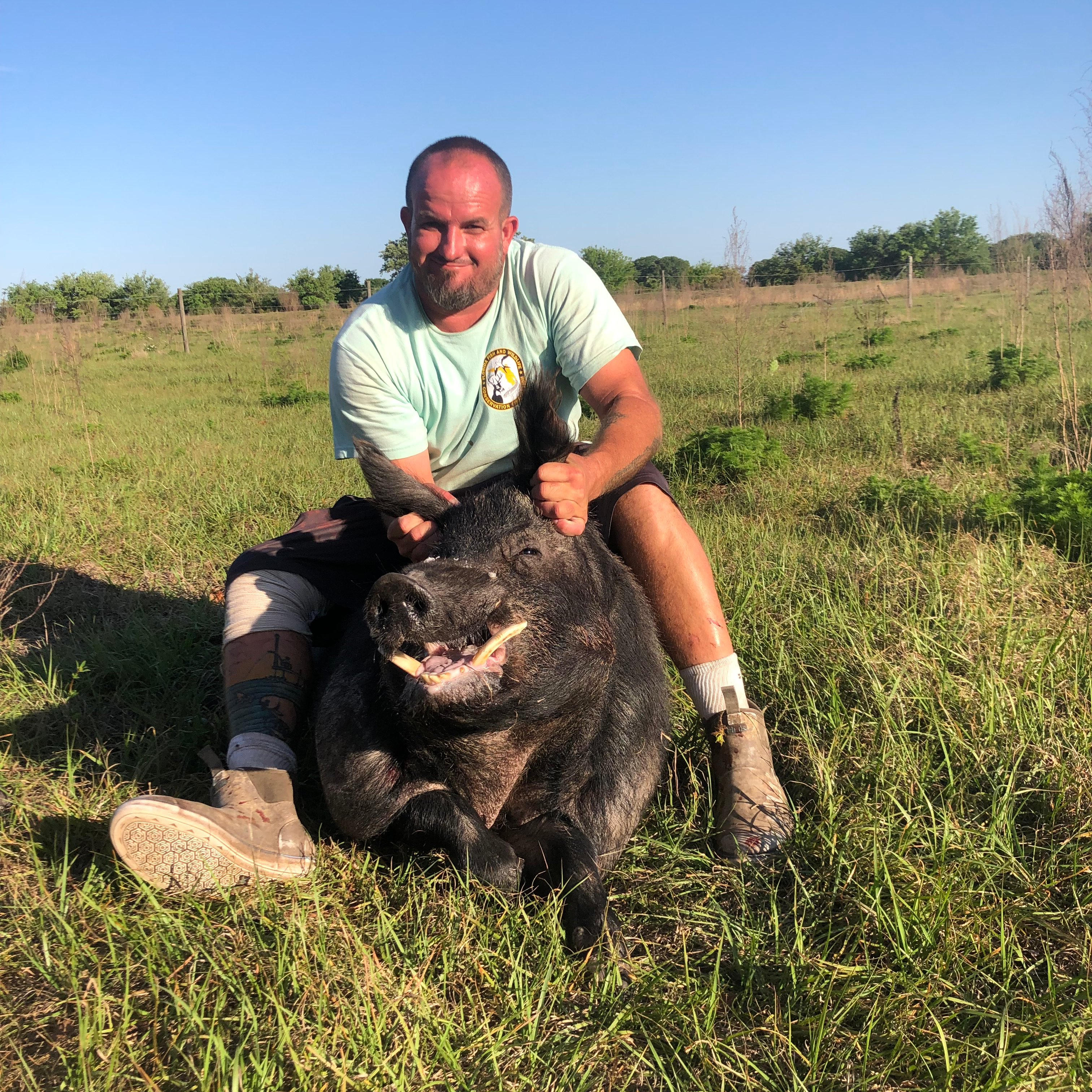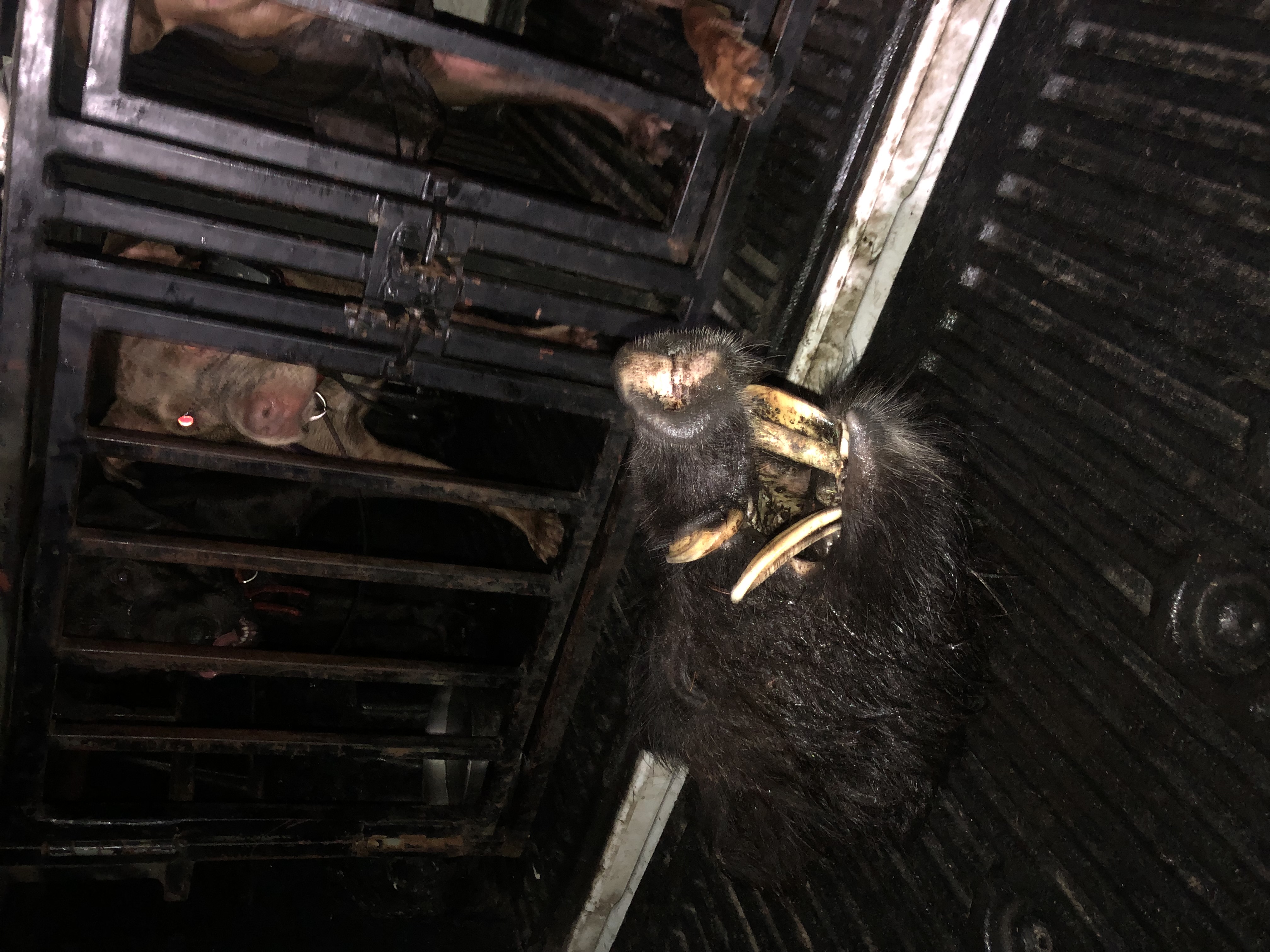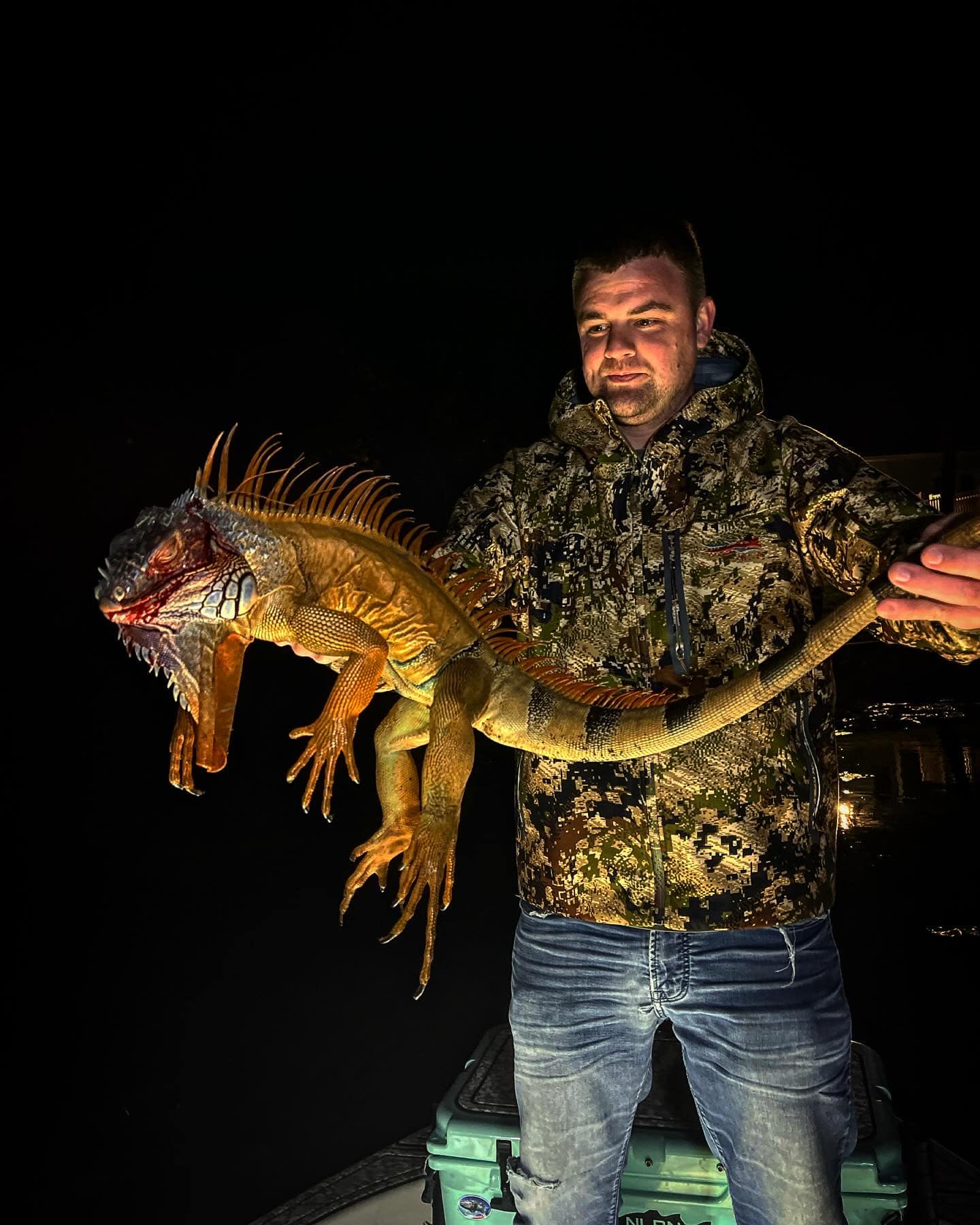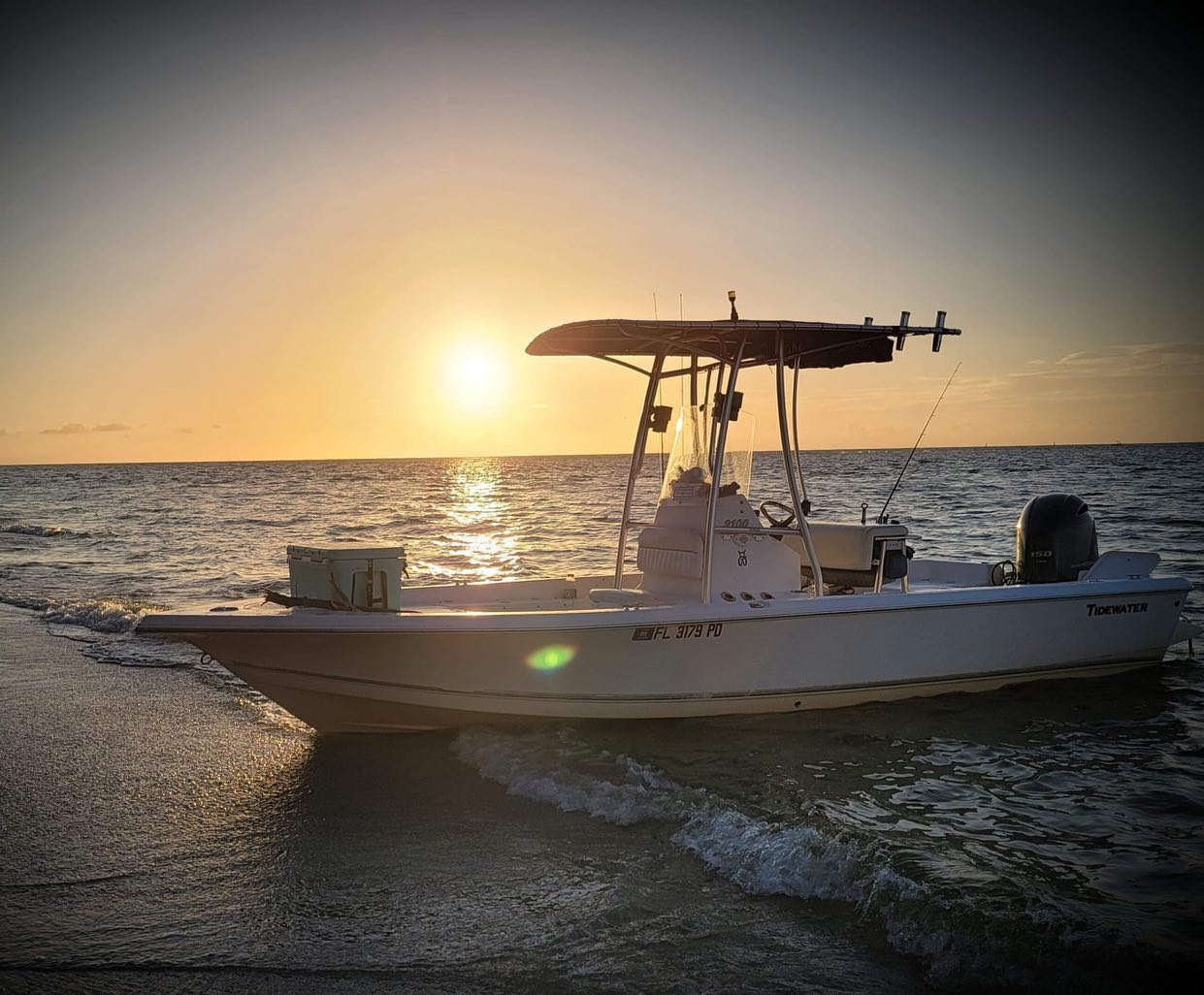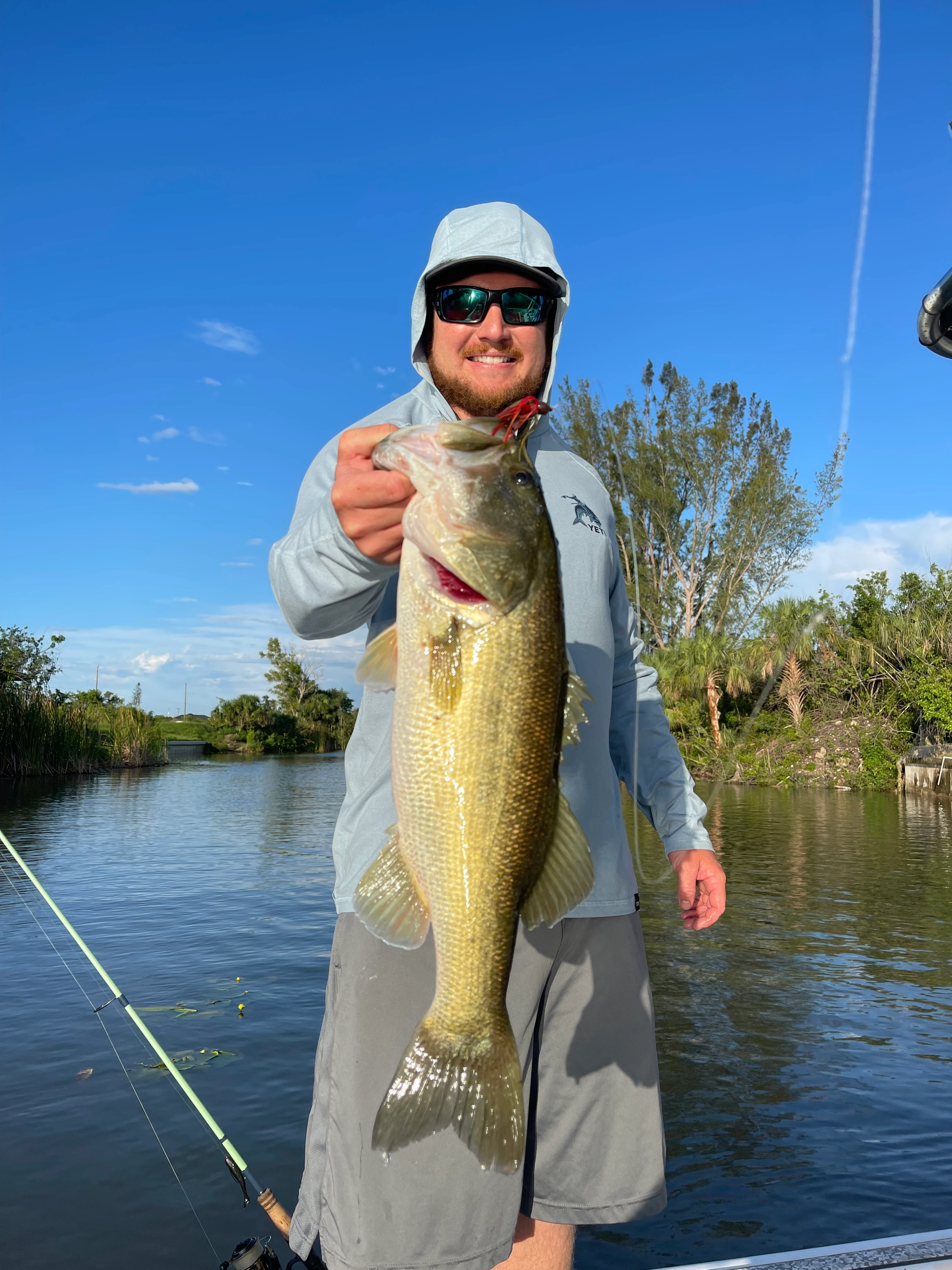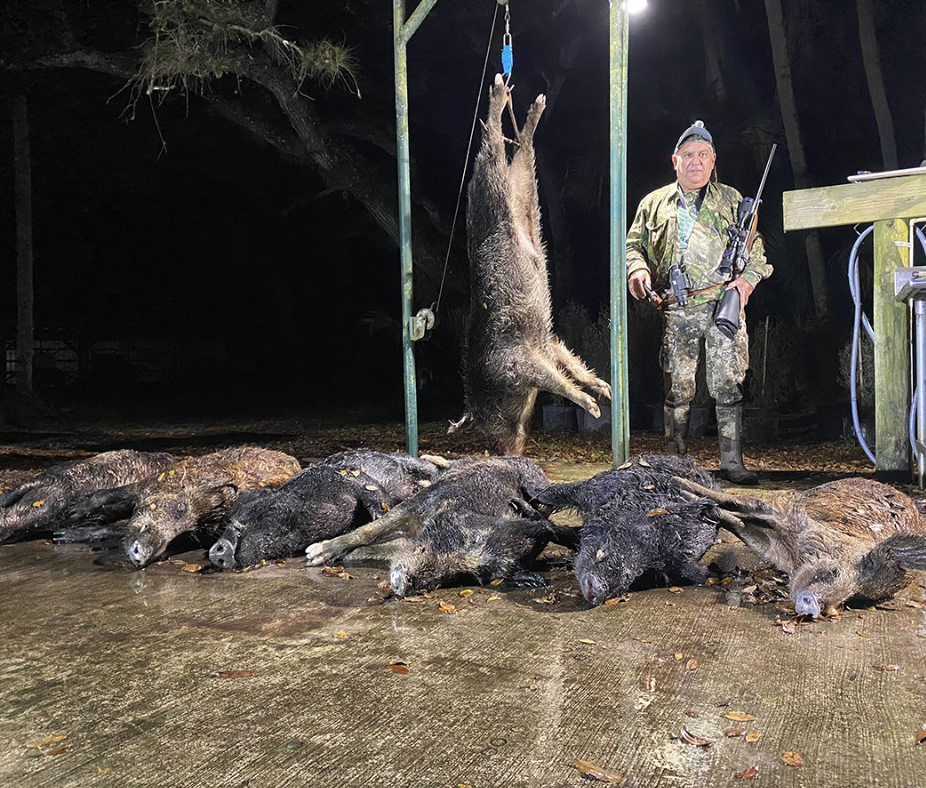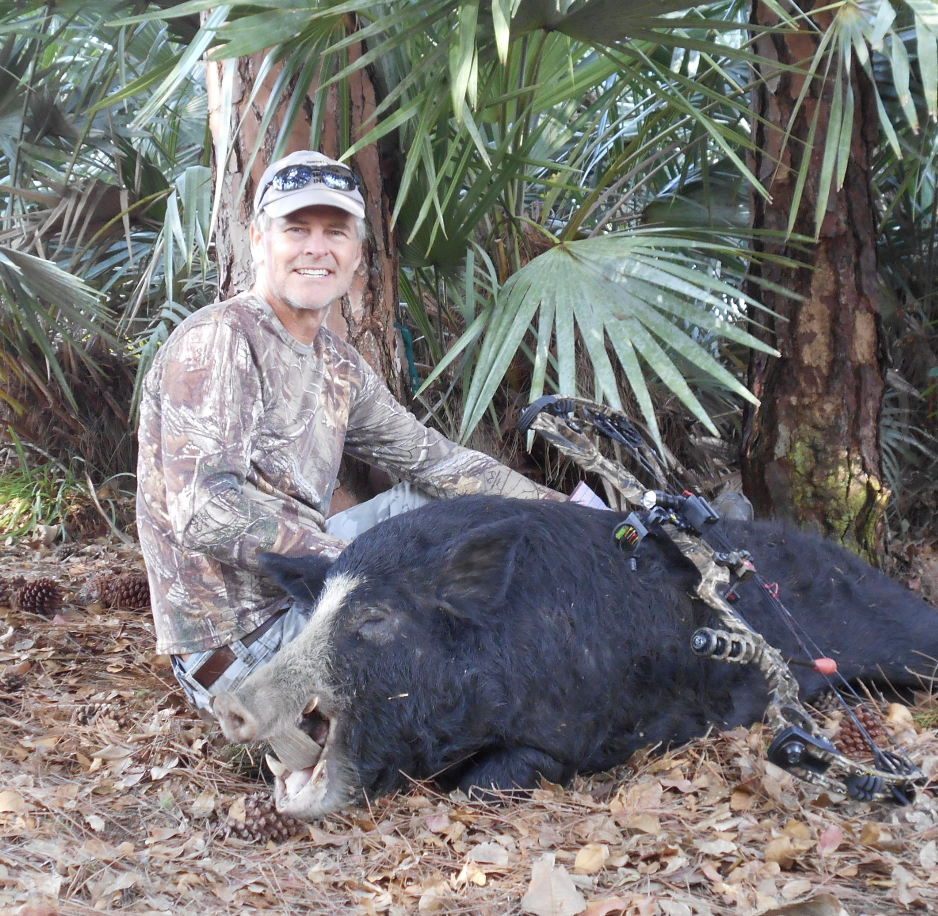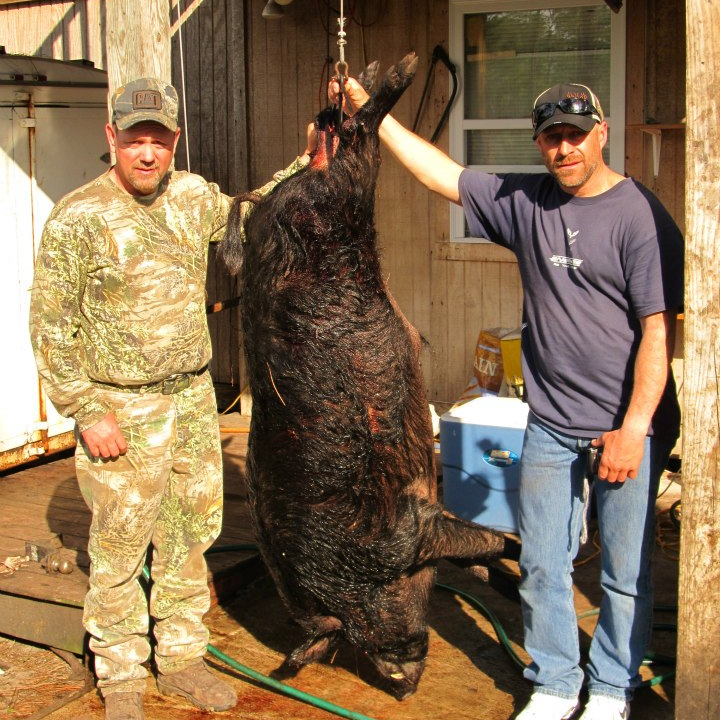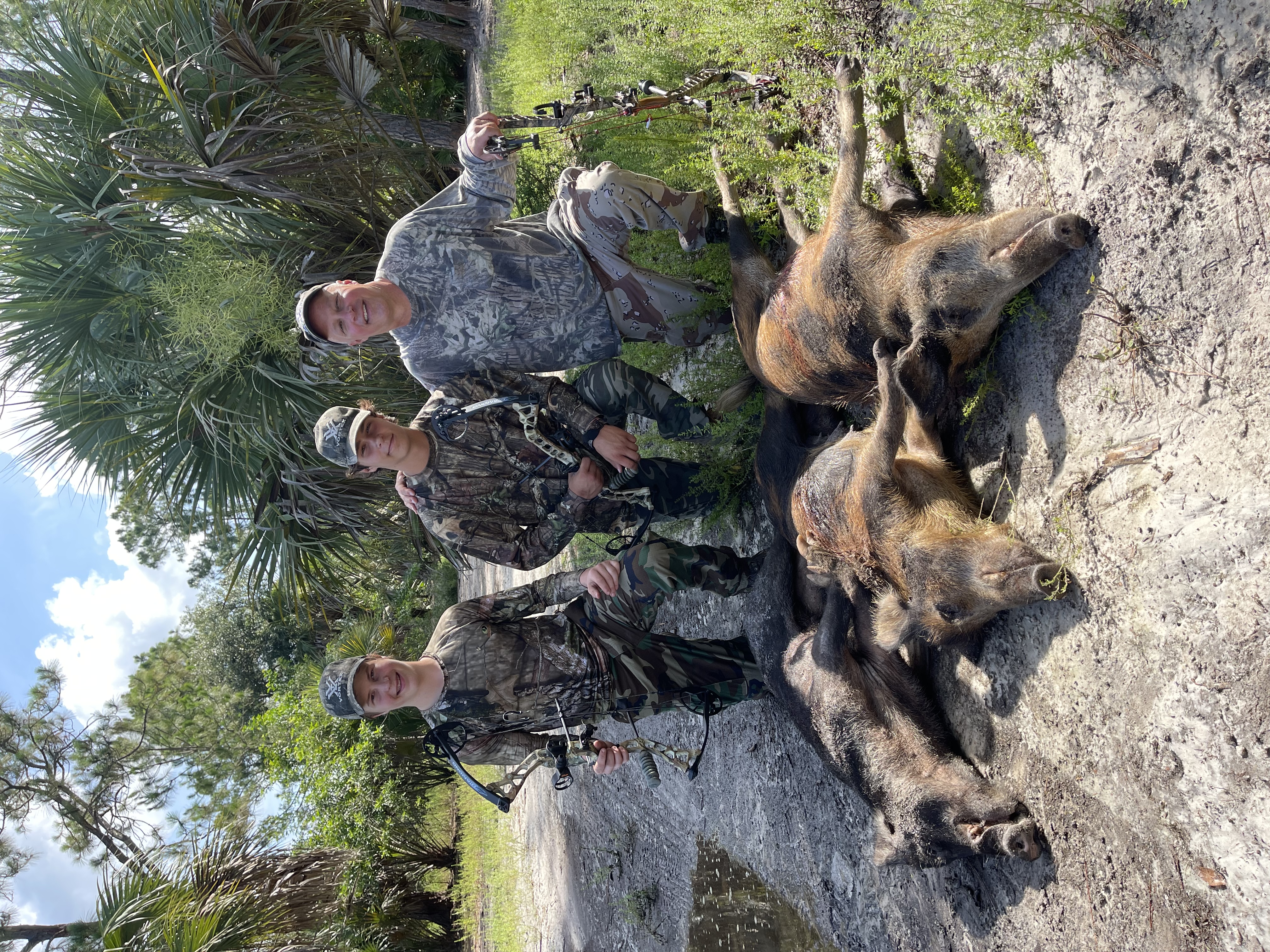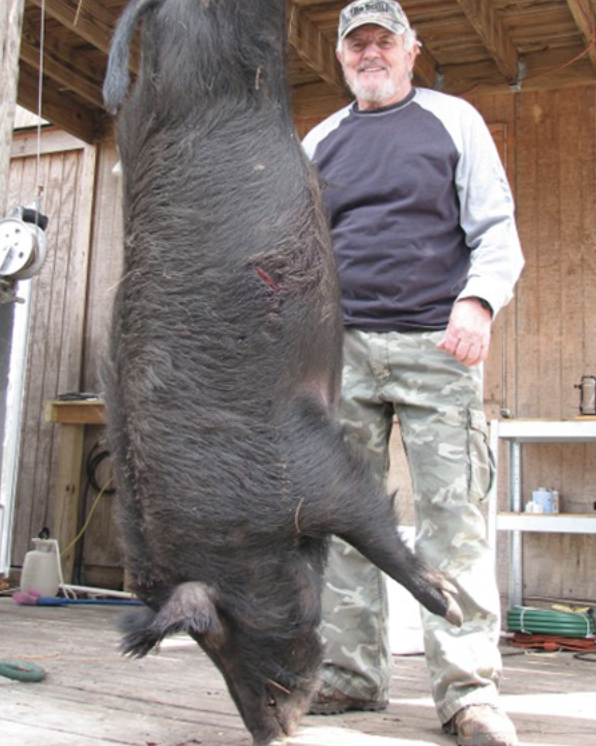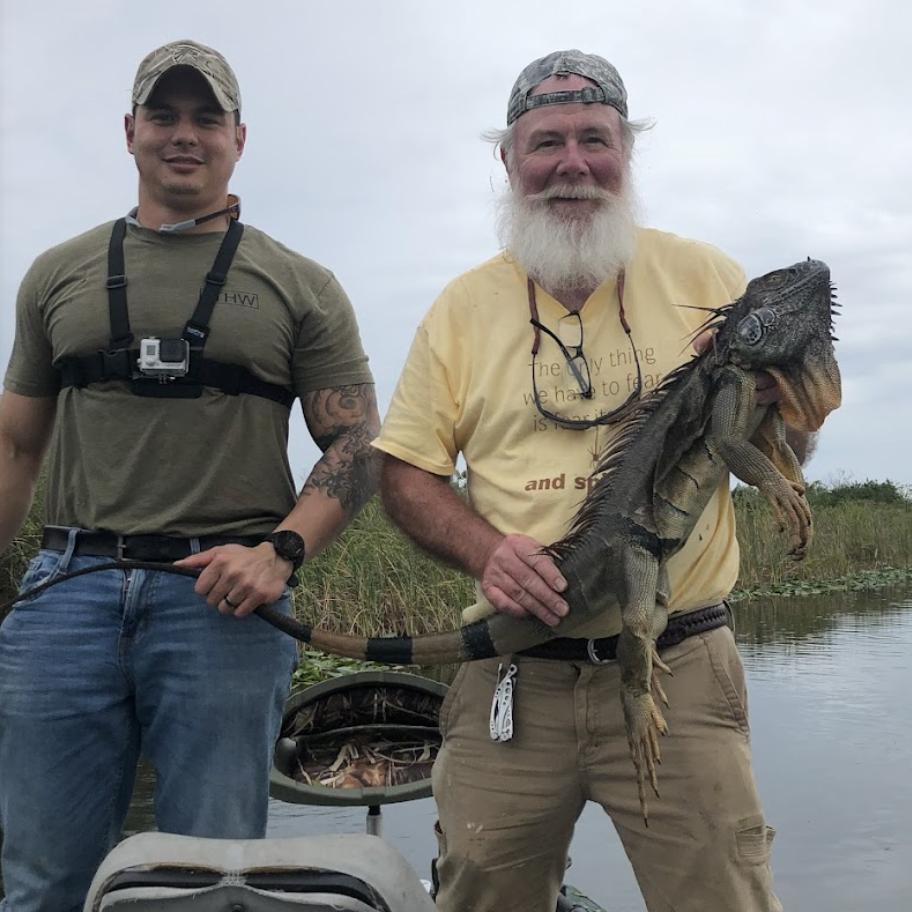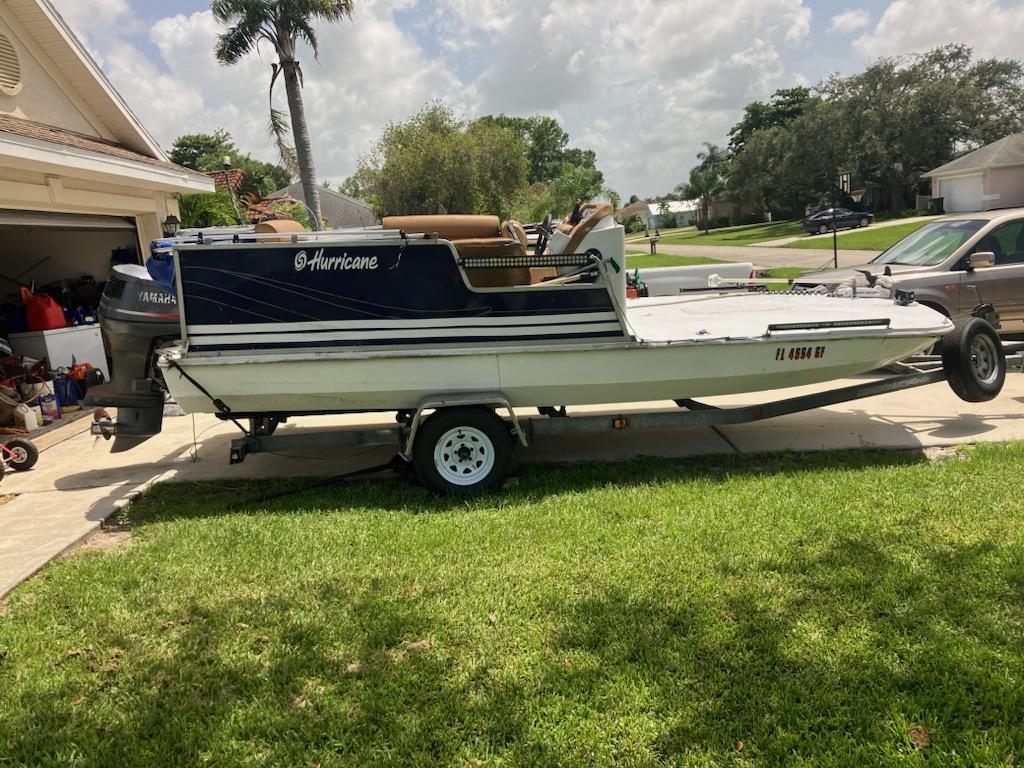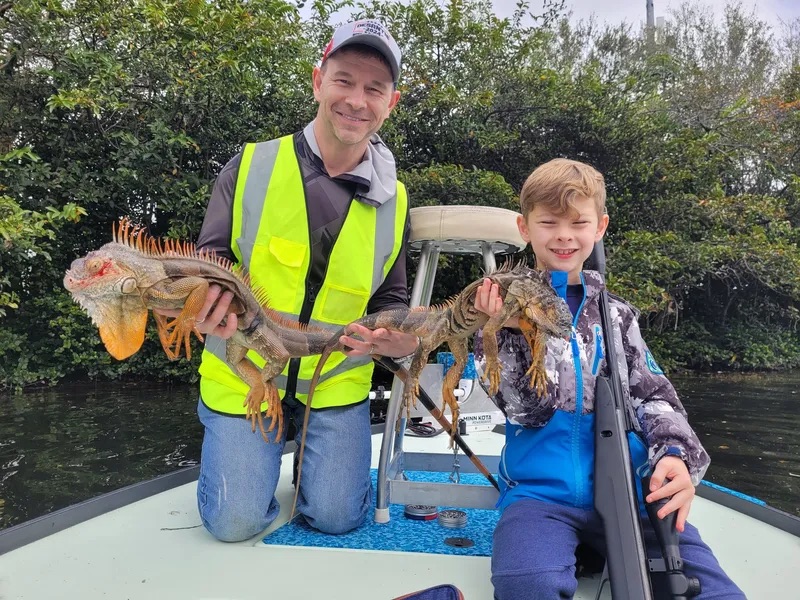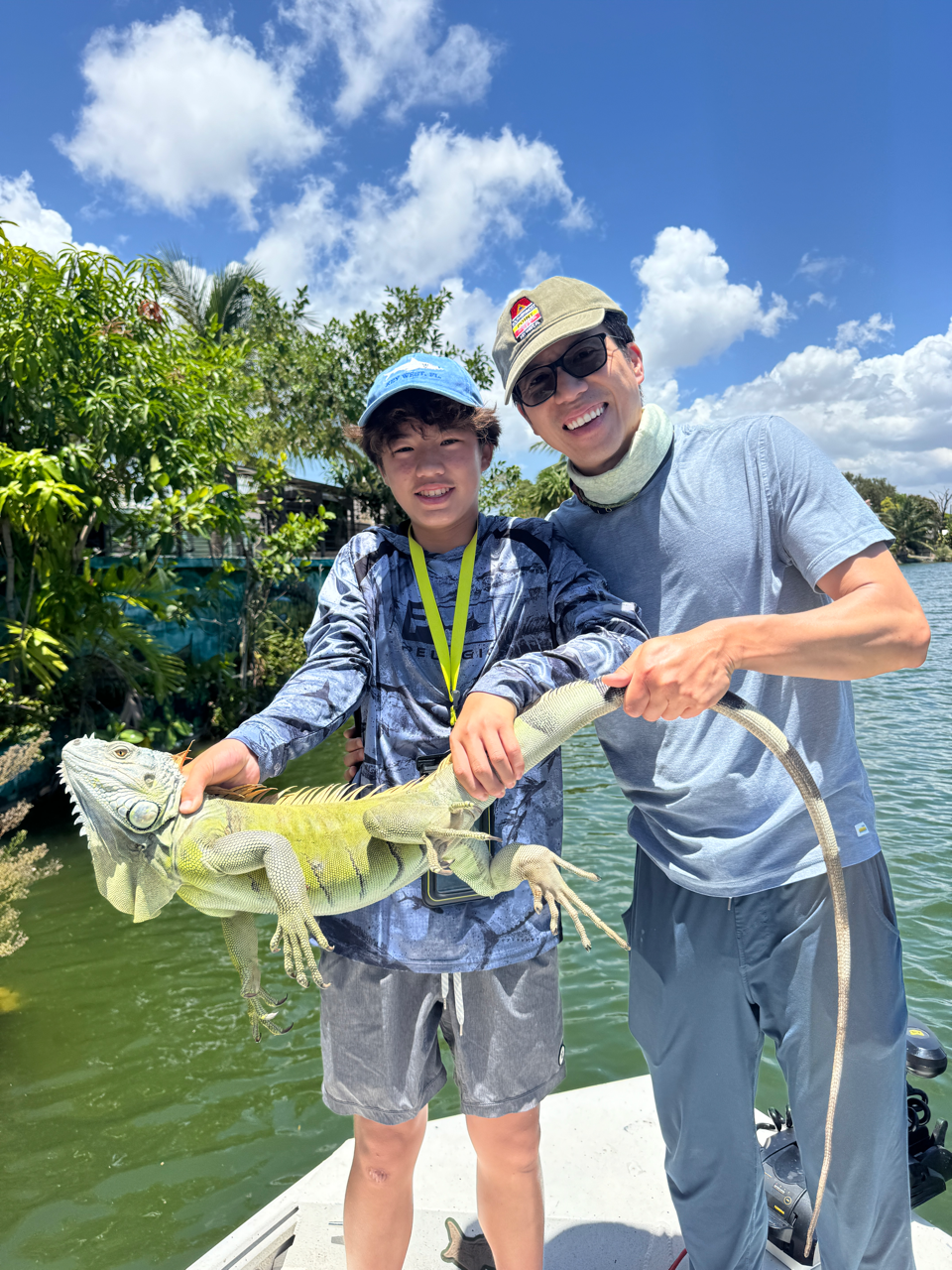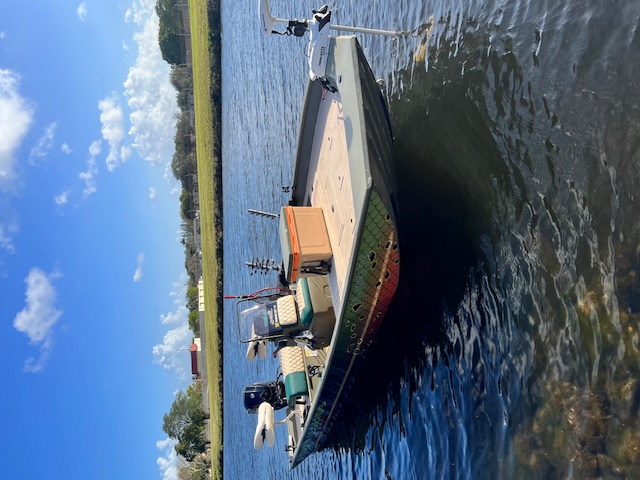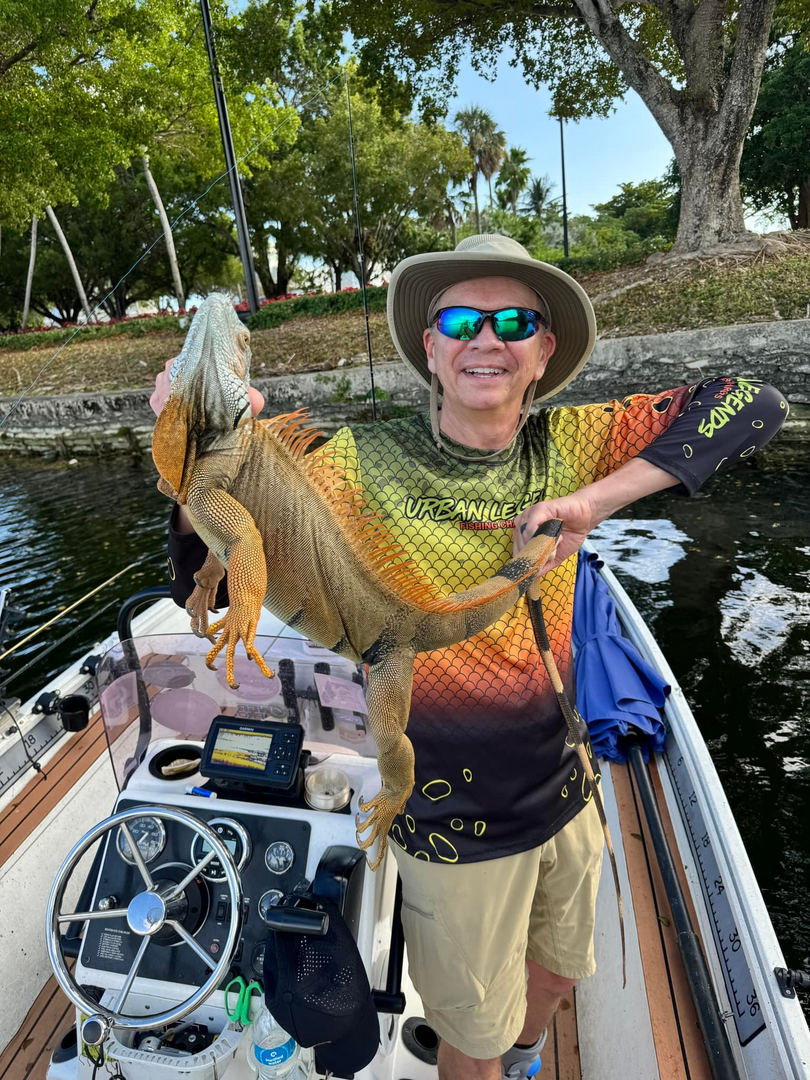Damn Good Guides
Experts Available 24/7
100% Weather Guarantee
Recently Booked Invasive Species Hunting Guides In Florida
Invasive Species Hunting in Marathon
Night Iguana Hunt
Cast & Blast in Fort Lauderdale
Cast And Blast Combo!
Invasive Species Hunting in Perry
101-130 Lb HOG
Invasive Species Hunting in Palatka
Meat Hog Hunts
Invasive Species Hunting in Stock Island
Iguana Hunt
Cast & Blast in Fort Lauderdale
Iguana Hunting / Peacock Bass Combo
Top Cities for Invasive Species Hunting in Florida
“Our Damn Good Guides go above and beyond, and we’ve handpicked every single one. We’re passionate about the outdoors and look forward to getting you out on the trip of a lifetime, every time.”
Jonathan and Attison | Co-founders | Austin, Texas
More Invasive Species Hunting Guides In Florida
Invasive Species Hunting in Cape Coral
Iguana Hunting Veteran Guides
Miami Hook & Boom Trip
Invasive Species Hunting in Okeechobee
Wild Hog Whack- With Lodging
Peacock Bass + Iguana Cast & Blast
Invasive Species Hunting in Fort McCoy
Thermal Hog Hunt
Invasive Species, Alligator Hunting in Zolfo Springs
Florida Alligator Hunting
Need a Place to Stay?
Everything to Know About Booking a hunting trip in Florida
What are the best invasive species hunting trips in Florida?
The best invasive species hunting trips in Florida are:
What is invasive species hunting in Florida all about?
Invasive species hunting in Florida is a critical endeavor aimed at managing and mitigating the impact of non-native species that threaten the state's ecosystems and native wildlife. Florida faces numerous invasive species challenges, ranging from Burmese pythons in the Everglades to lionfish along its coastlines. These invasive species often outcompete native wildlife for resources, disrupt natural habitats, and can cause significant ecological harm. As a result, efforts to control and reduce their populations through hunting and removal programs are essential to protect Florida's biodiversity and ecosystem health.
One of the most notable invasive species targeted for hunting in Florida is the Burmese python, a large constrictor snake native to Southeast Asia. Introduced through the exotic pet trade, Burmese pythons have proliferated in the Everglades, where they prey on native mammals, birds, and reptiles, disrupting the natural food chain. Invasive species hunters, often working in conjunction with wildlife agencies and conservation groups, use specialized techniques such as trapping, tracking, and removal to locate and capture these elusive snakes. These efforts help to mitigate their impact on native wildlife and reduce their numbers in sensitive habitats.
Along Florida's coasts, the invasive lionfish poses a significant threat to marine ecosystems. Native to the Indo-Pacific region, lionfish have no natural predators in Florida waters and prey voraciously on small fish and crustaceans, potentially destabilizing local fish populations and coral reef ecosystems. In response, conservationists and recreational divers participate in lionfish hunting tournaments and removal initiatives to cull their numbers. Techniques such as spearfishing and netting are employed to capture lionfish, which are not only invasive but also prized for their mild, white flesh, making them a unique addition to seafood markets. Invasive species hunting in Florida is an ongoing effort requiring collaboration between government agencies, conservation organizations, and the public to safeguard the state's natural resources and maintain ecological balance in its diverse ecosystems.
What are the most popular months to go invasive species hunting in Florida?
In Florida, invasive species hunting is not typically governed by specific "seasons" in the traditional sense, but rather it is a year-round effort due to the ongoing threat posed by various non-native species. The state faces significant challenges from invasive species such as Burmese pythons in the Everglades, lionfish along its coastlines, and various invasive plants that threaten natural habitats. The approach to hunting these invasive species often involves continuous monitoring, targeted removal efforts, and public participation through organized events and programs.
For instance, the hunt for Burmese pythons in the Everglades is an ongoing initiative led by state agencies, conservation groups, and trained hunters. Given their detrimental impact on native wildlife, particularly small mammals and birds, efforts to locate and remove pythons are constant throughout the year. Specialized hunting techniques, including trapping, tracking, and sometimes even using trained dogs, are employed to capture these elusive snakes, which can grow to significant sizes and are challenging to detect in the vast wetlands of South Florida.
Similarly, hunting invasive lionfish along Florida's coastlines is a year-round endeavor due to their prolific breeding and rapid spread. Lionfish, originally from the Indo-Pacific, have established themselves in the Atlantic Ocean and Gulf of Mexico, preying on native fish species and disrupting coral reef ecosystems. Conservationists and divers participate in organized lionfish derbies and removal events throughout the year, utilizing spearfishing and other techniques to reduce their numbers and minimize their impact on marine biodiversity. These efforts are crucial in managing invasive species populations and preserving Florida's diverse and fragile coastal environments.
What techniques are popular for invasive species hunting in Florida?
Invasive species hunting in Florida encompasses a range of methods and techniques tailored to the specific challenges posed by different non-native species threatening the state's ecosystems. One prominent example is the hunting of Burmese pythons in the Everglades. These large constrictor snakes have proliferated in South Florida, preying on native wildlife and disrupting the natural balance of the region. Hunters often use specialized techniques such as radio telemetry to track snake movements, trapping with live bait or scent lures, and manual capture when pythons are spotted in the wild. These efforts require skill and persistence due to the pythons' elusive nature and ability to blend into their surroundings.
Another invasive species targeted for hunting in Florida is the lionfish, which has become a major concern in coastal waters. Lionfish, native to the Indo-Pacific, have invaded Florida's reefs and pose a significant threat to native fish populations and coral ecosystems. Divers and conservationists use spearfishing as a primary method to hunt lionfish, equipped with specially designed spear guns to capture these invasive predators. Lionfish derbies and tournaments are also organized events where participants compete to remove as many lionfish as possible, helping to reduce their numbers and minimize their impact on marine biodiversity.
Invasive plant species also require attention in Florida, where species like Brazilian pepper, melaleuca, and Australian pine can quickly overtake native vegetation. Control methods for invasive plants often involve mechanical removal, such as cutting and uprooting, combined with herbicide treatments to prevent regrowth. These efforts are crucial in restoring native habitats and preventing further spread of invasive plant species that outcompete indigenous flora and alter ecosystem dynamics. Overall, invasive species hunting in Florida demands a multi-faceted approach involving scientific research, community involvement, and coordinated management strategies to mitigate the ecological and economic impacts of non-native species.
What species are popular for invasive species hunting in Florida?
Invasive species hunting in Florida focuses on targeting non-native species that have established themselves and pose significant threats to the state's native ecosystems. One of the primary targets for hunting is the Burmese python, a large constrictor snake that has proliferated in the Everglades. These snakes prey on native wildlife such as small mammals, birds, and reptiles, disrupting the natural food chain. Hunters use specialized techniques such as tracking with radio telemetry, setting traps baited with live animals or scent lures, and conducting manual searches to locate and capture pythons, which can reach considerable lengths and are adept at concealing themselves in the dense vegetation.
Another species of concern for invasive species hunters in Florida is the lionfish, which has invaded the state's coastal waters. Native to the Indo-Pacific, lionfish have no natural predators in Florida and prey voraciously on small fish and crustaceans, posing a threat to native marine biodiversity and coral reef ecosystems. Hunters, often consisting of recreational divers and conservationists, use spearfishing as the primary method to capture lionfish. Equipped with specially designed spear guns, hunters target lionfish along reefs, wrecks, and other underwater structures where they have established populations. Efforts to control lionfish populations include organized derbies and tournaments where participants compete to remove as many individuals as possible, thereby helping to mitigate their impact on native marine species.
Invasive plant species are also targeted for hunting in Florida, where species like Brazilian pepper, melaleuca, and Australian pine can quickly spread and dominate native habitats. Hunters of invasive plants typically employ methods such as mechanical removal, where plants are physically uprooted or cut down, followed by treatments with herbicides to prevent regrowth. This approach is crucial in restoring and maintaining the health of Florida's natural landscapes by reducing the competitive advantage of invasive plants over native flora. Overall, invasive species hunting in Florida requires a concerted effort involving community participation, specialized knowledge, and strategic management to safeguard the state's diverse ecosystems from the impacts of non-native species.
Recent Reviews
The Best Places to Hunt in Florida
- Altha, FL
- Arcadia, FL
- Boynton Beach, FL
- Cape Coral, FL
- Clermont, FL
- DeFuniak Springs, FL
- Destin, FL
- Fort Lauderdale, FL
- Fort McCoy, FL
- Immokalee, FL
- Lake Worth Beach, FL
- Lantana, FL
- Marathon, FL
- Miami, FL
- Miami Beach, FL
- Mims, FL
- Okeechobee, FL
- Palatka, FL
- Perry, FL
- Plantation, FL
- Poinciana, FL
- Stock Island, FL
- Sunrise, FL
- Sunset, FL
- West Palm Beach, FL
- Weston, FL
- Zolfo Springs, FL
Types of Tours in Florida
Featured Cities
- Fishing Charters Near Me
- Austin Fishing Guides
- Biloxi Fishing Charters
- Bradenton Fishing Charters
- Cabo San Lucas Fishing Charters
- Cancun Fishing Charters
- Cape Coral Fishing Charters
- Charleston Fishing Charters
- Clearwater Fishing Charters
- Corpus Christi Fishing Charters
- Crystal River Fishing Charters
- Dauphin Island Fishing Charters
- Daytona Beach Fishing Charters
- Destin Fishing Charters
- Fort Lauderdale Fishing Charters
- Fort Myers Fishing Charters
- Fort Walton Beach Fishing Charters
- Galveston Fishing Charters
- Gulf Shores Fishing Charters
- Hatteras Fishing Charters
- Hilton Head Fishing Charters
- Islamorada Fishing Charters
- Jacksonville Fishing Charters
- Jupiter Fishing Charters
- Key Largo Fishing Charters
- Key West Fishing Charters
- Kona Fishing Charters
- Lakeside Marblehead Fishing Charters
- Marathon Fishing Charters
- Marco Island Fishing Charters
- Miami Fishing Charters
- Montauk Fishing Charters
- Morehead City Fishing Charters
- Naples Fishing Charters
- New Orleans Fishing Charters
- New Smyrna Beach Fishing Charters
- Ocean City Fishing Charters
- Orange Beach Fishing Charters
- Panama City Beach Fishing Charters
- Pensacola Fishing Charters
- Pompano Beach Fishing Charters
- Port Aransas Fishing Charters
- Port Orange Fishing Charters
- Rockport Fishing Charters
- San Diego Fishing Charters
- San Juan Fishing Charters
- Sarasota Fishing Charters
- South Padre Island Fishing Charters
- St. Augustine Fishing Charters
- St. Petersburg Fishing Charters
- Tampa Fishing Charters
- Tarpon Springs Fishing Charters
- Venice Fishing Charters
- Virginia Beach Fishing Charters
- West Palm Beach Fishing Charters
- Wilmington Fishing Charters
- Wrightsville Beach Fishing Charters
Didn't Find What You Were Looking For?
Our guides are Damn Good Guides, which means they’re vetted by our team of outdoor experts who know them on a first-name basis. We hand pick each and every one of them, and our network spans all across the US and beyond.
The proof is in the pudding, and we’re incredibly proud of our 4.9 / 5 average review score. Hit the button below to see more trip options:
